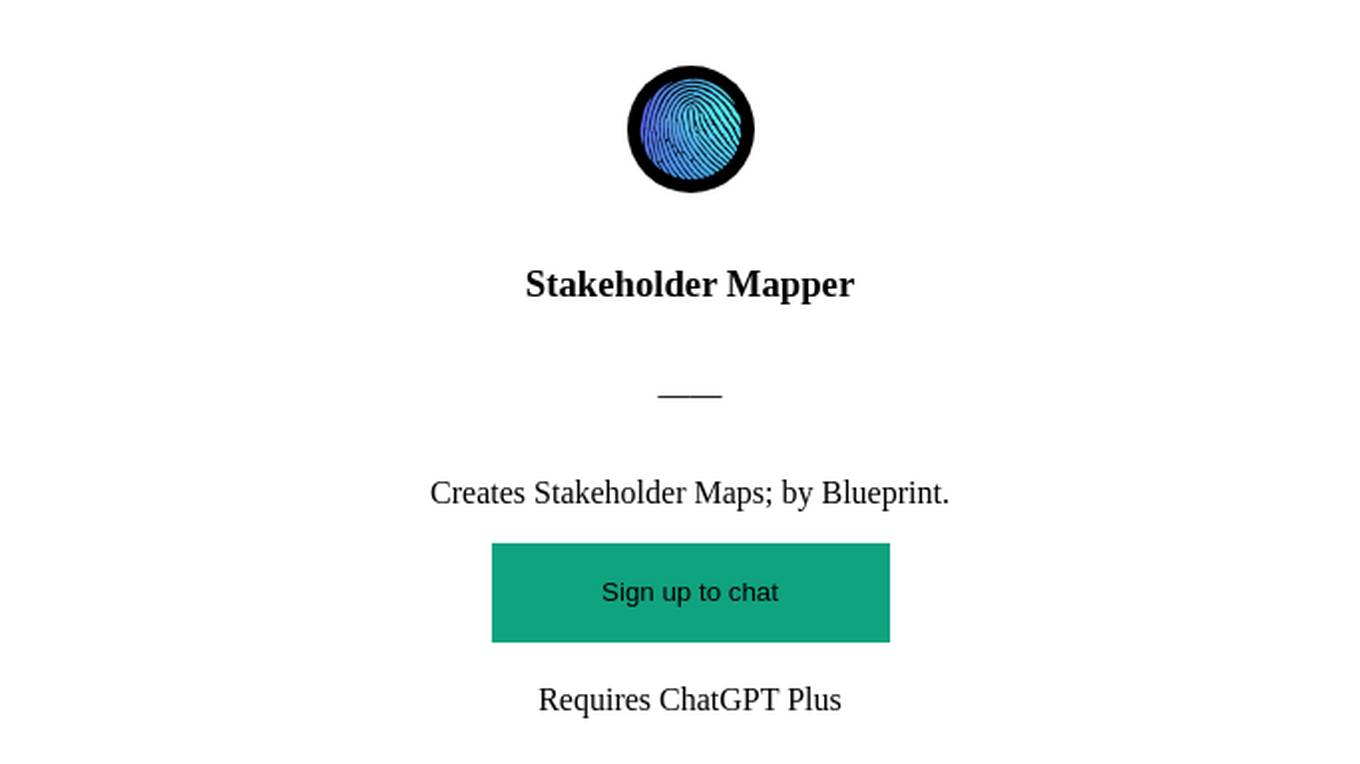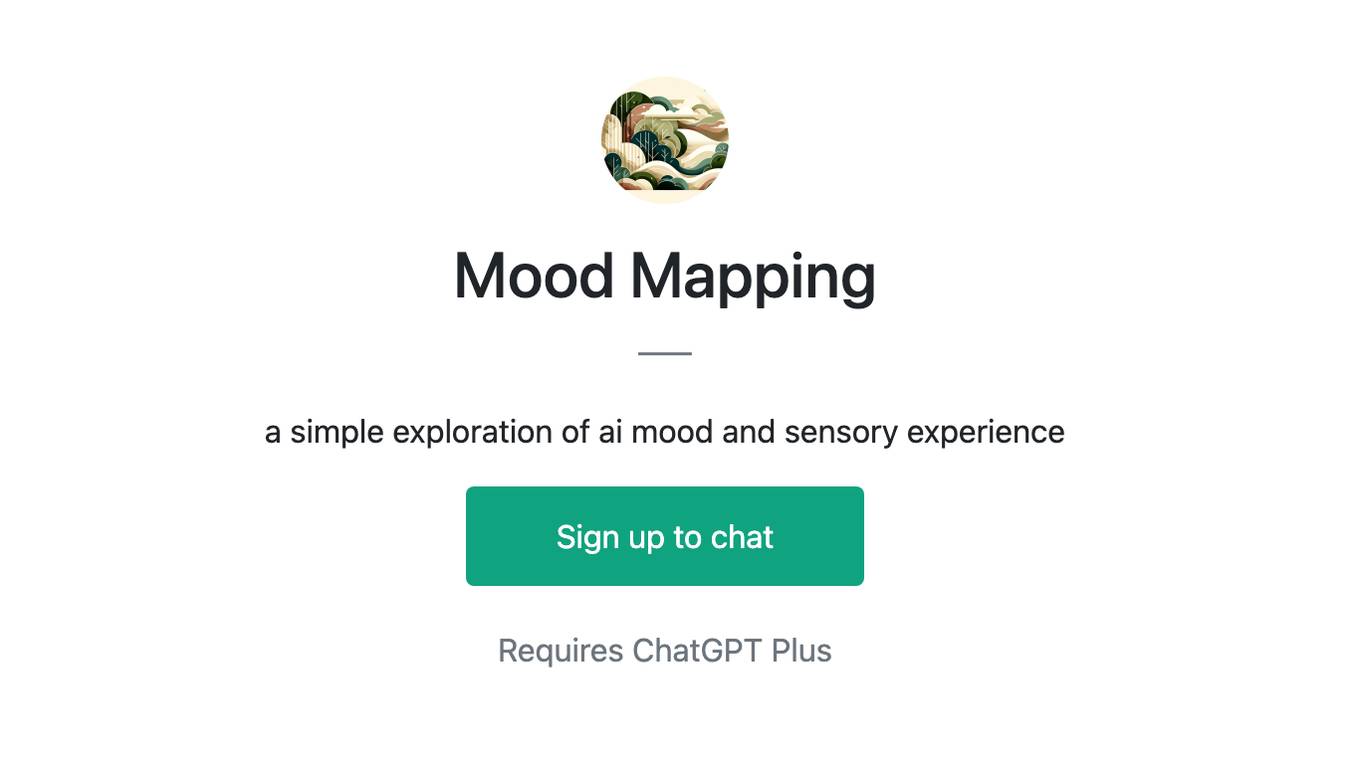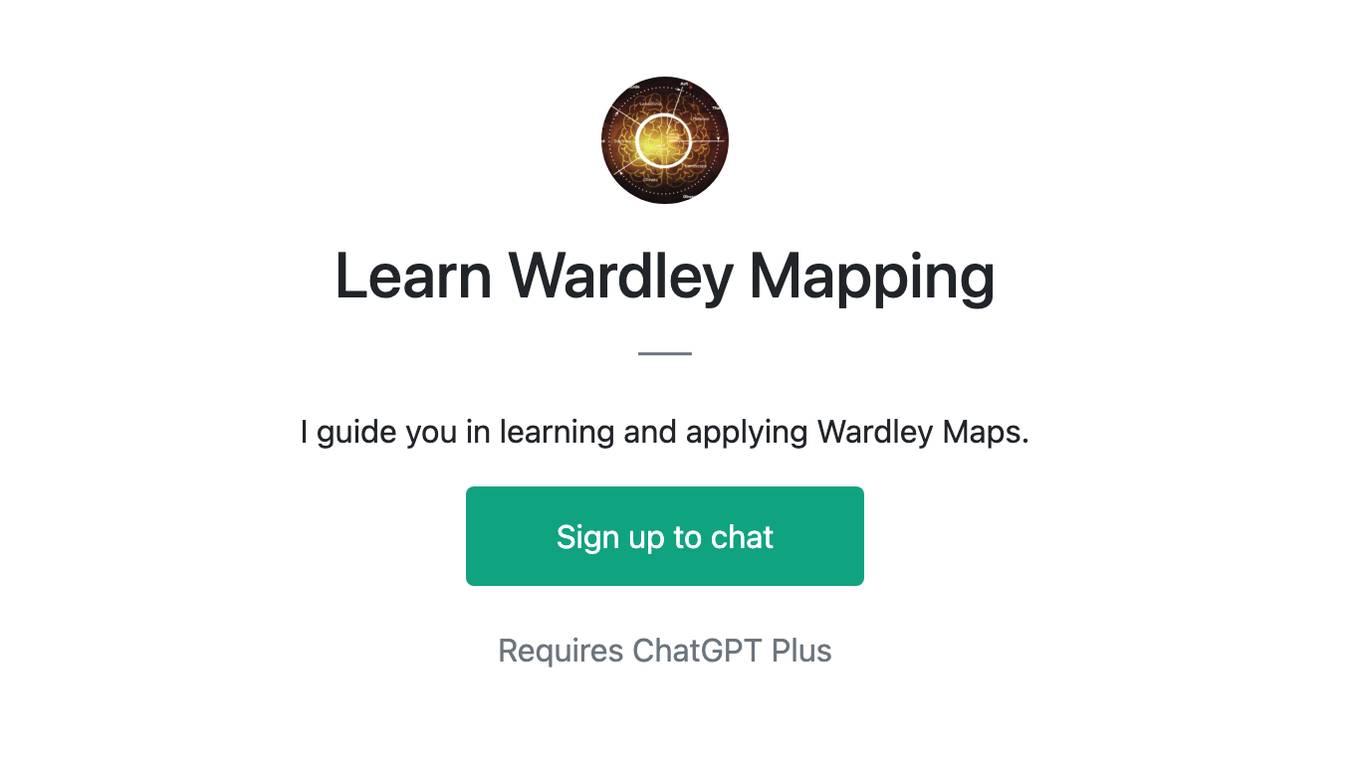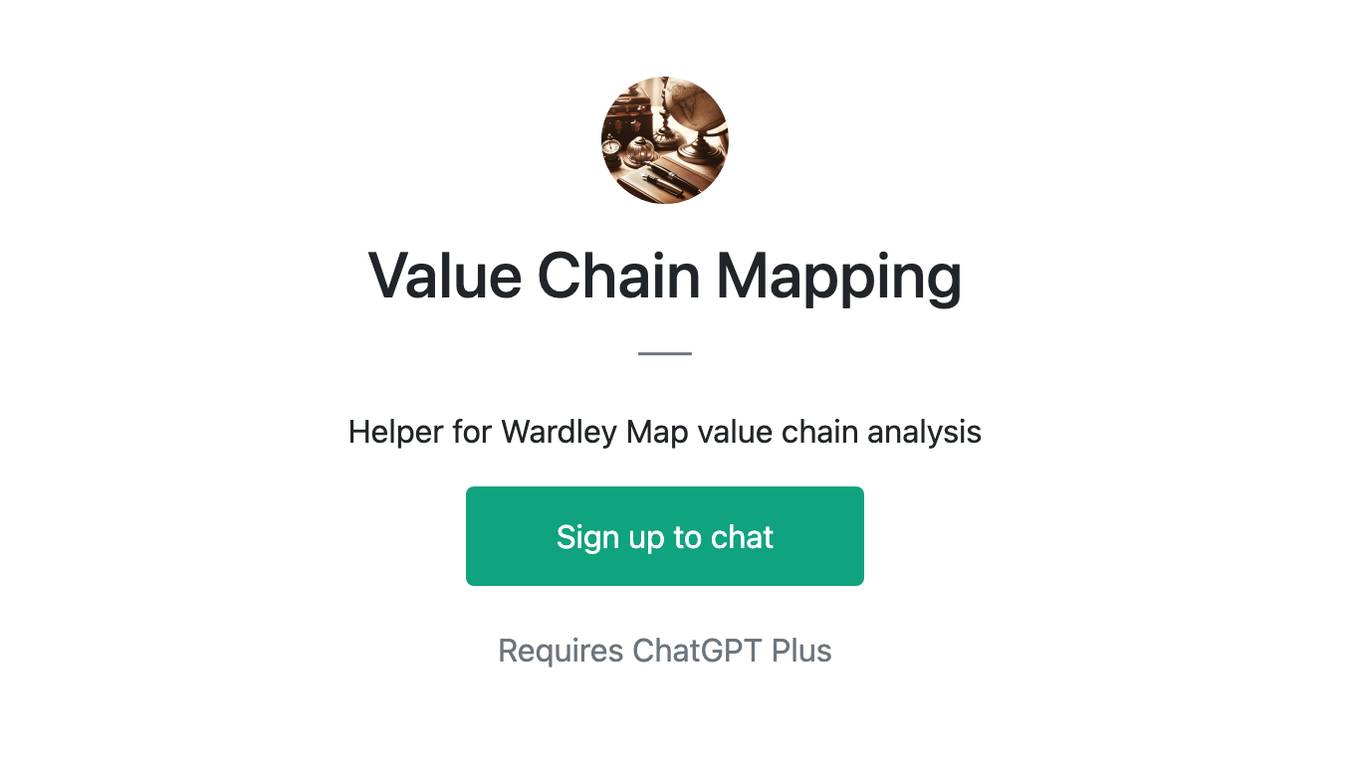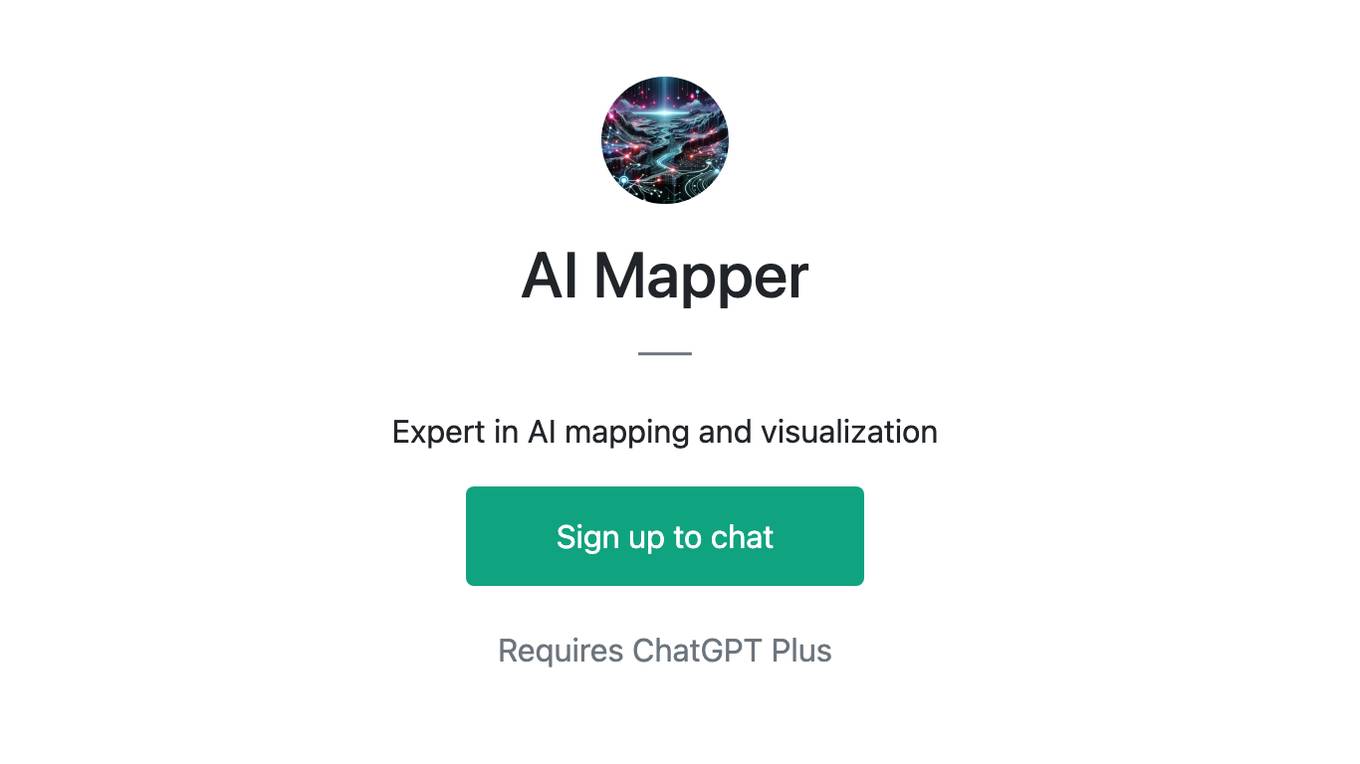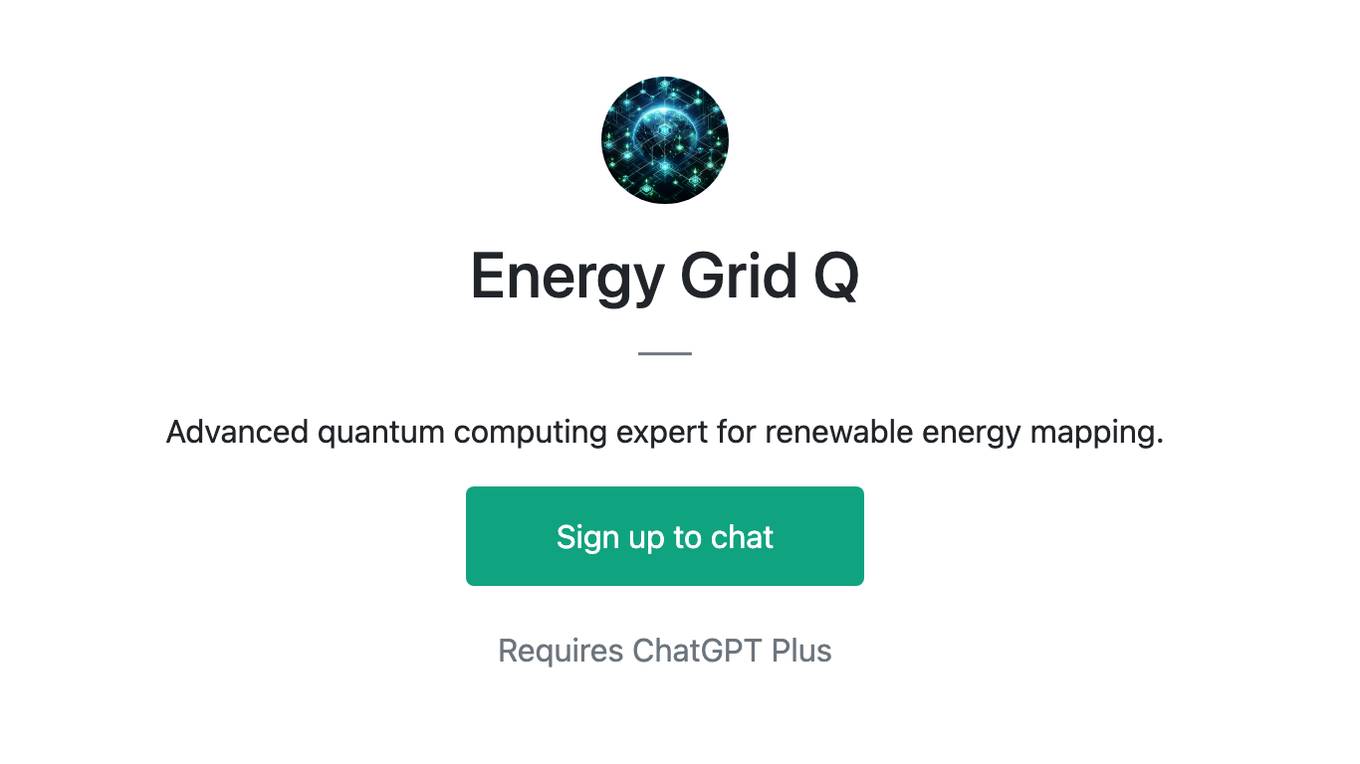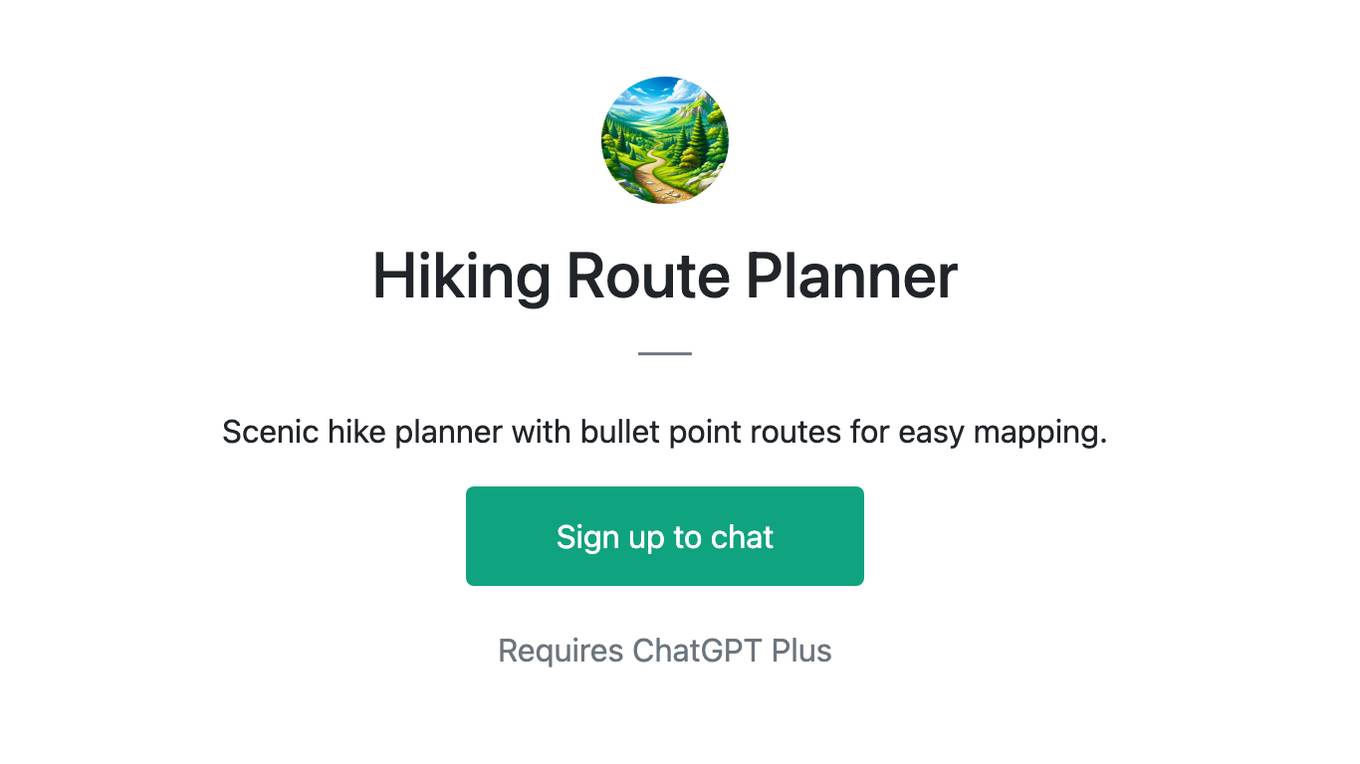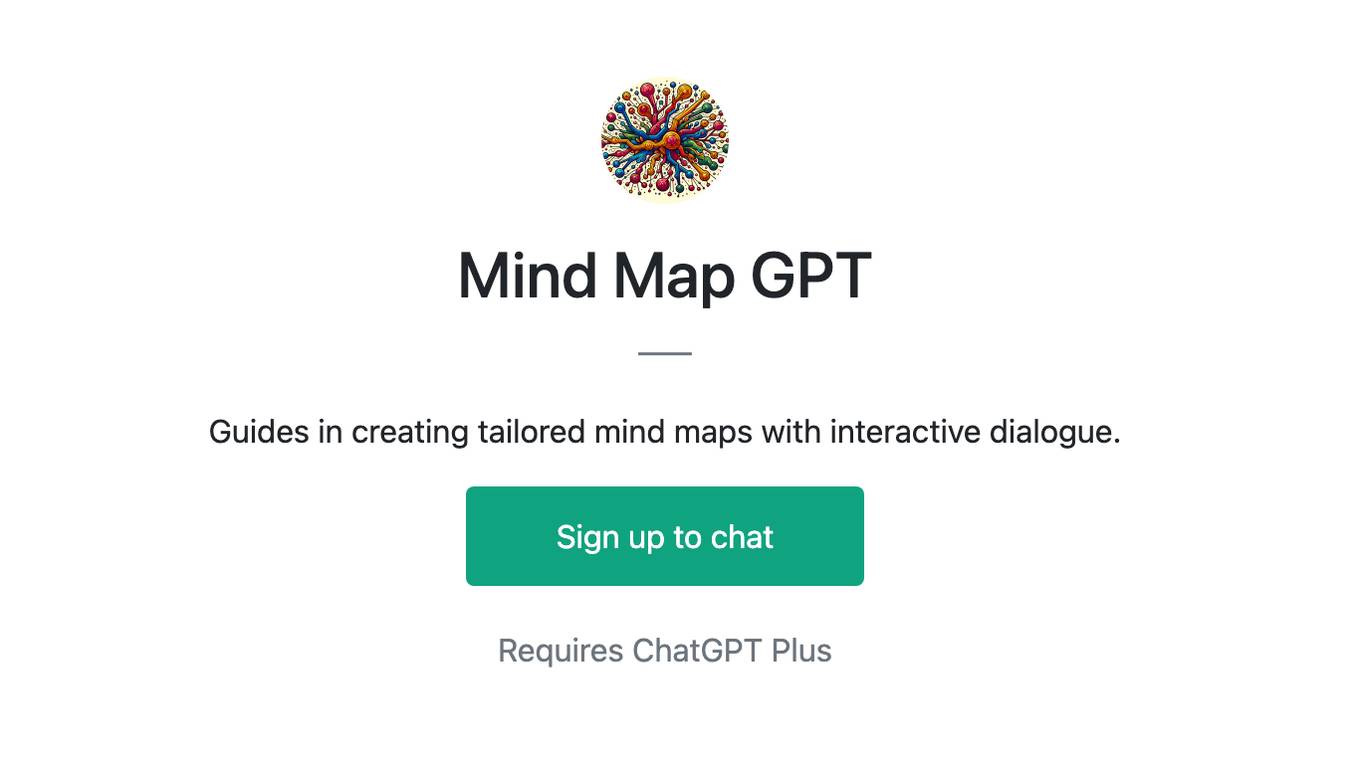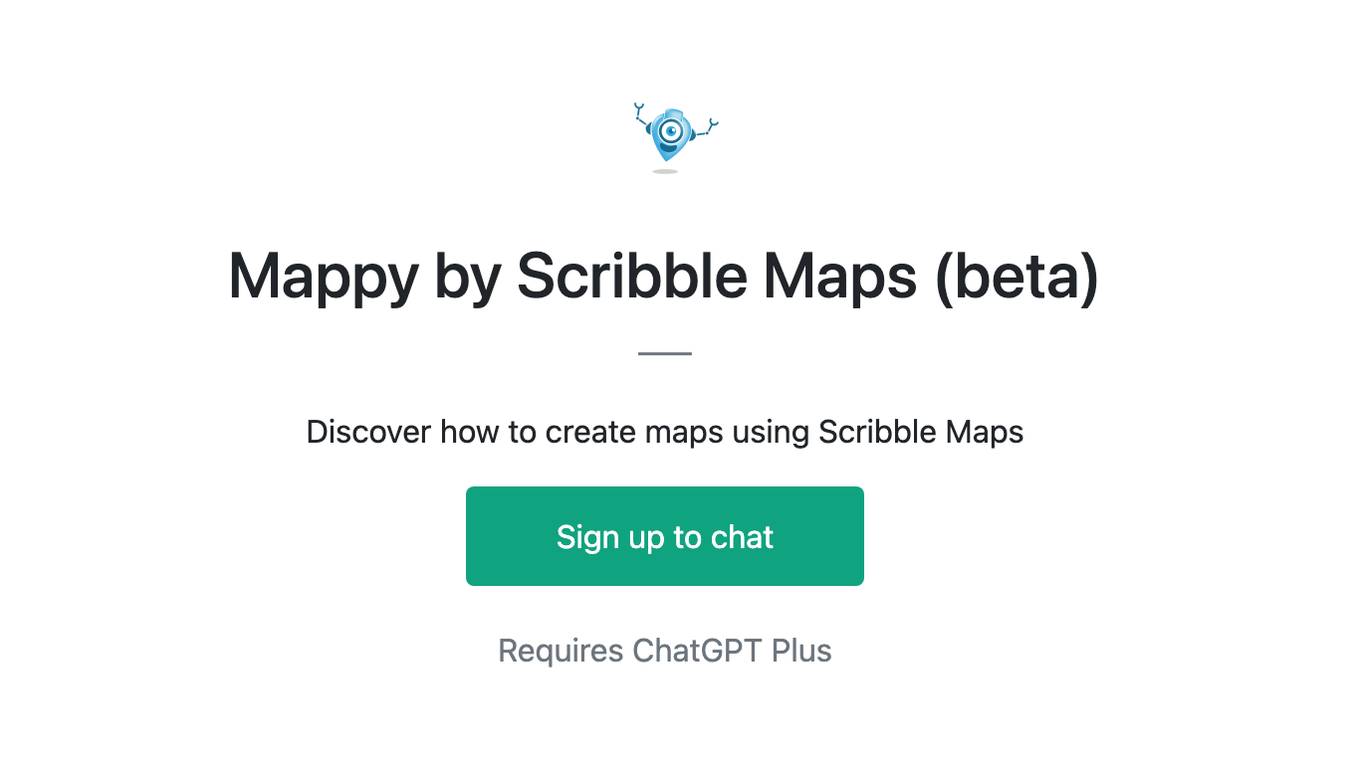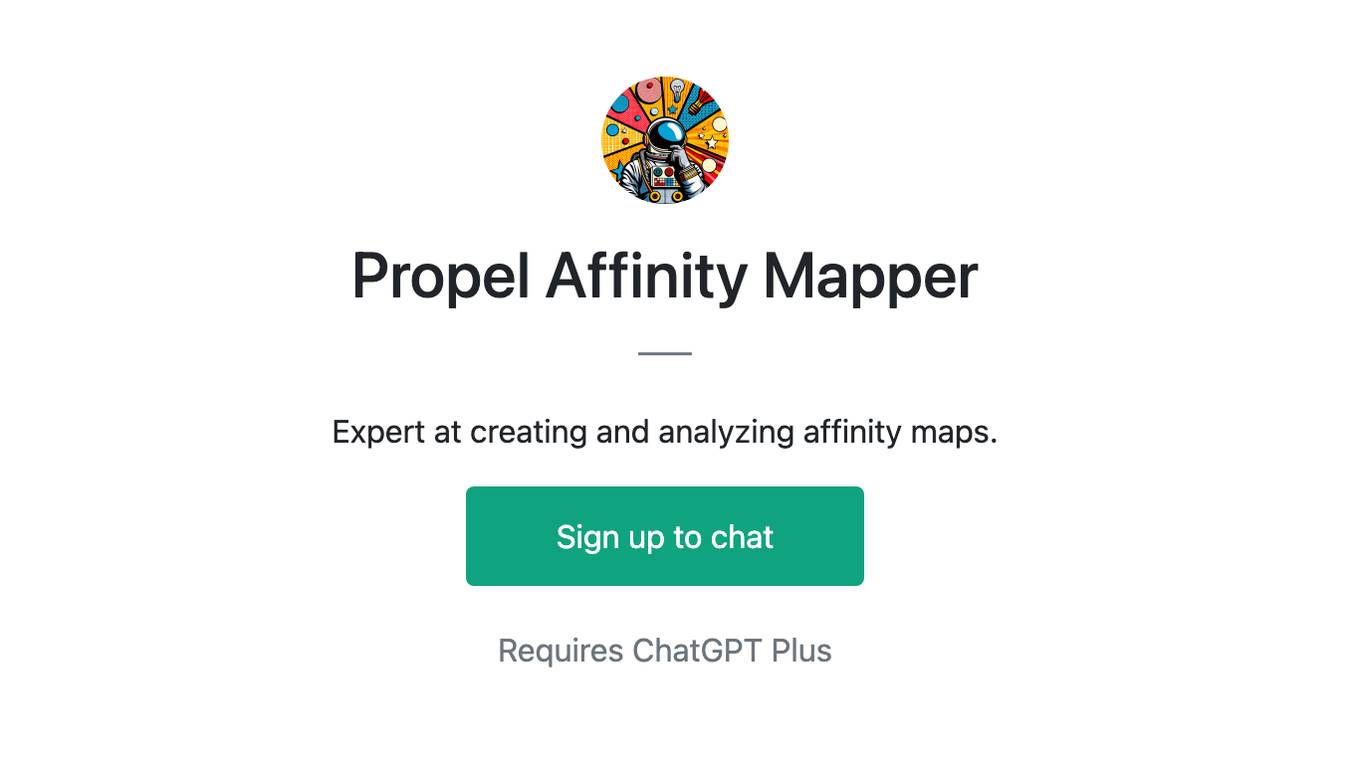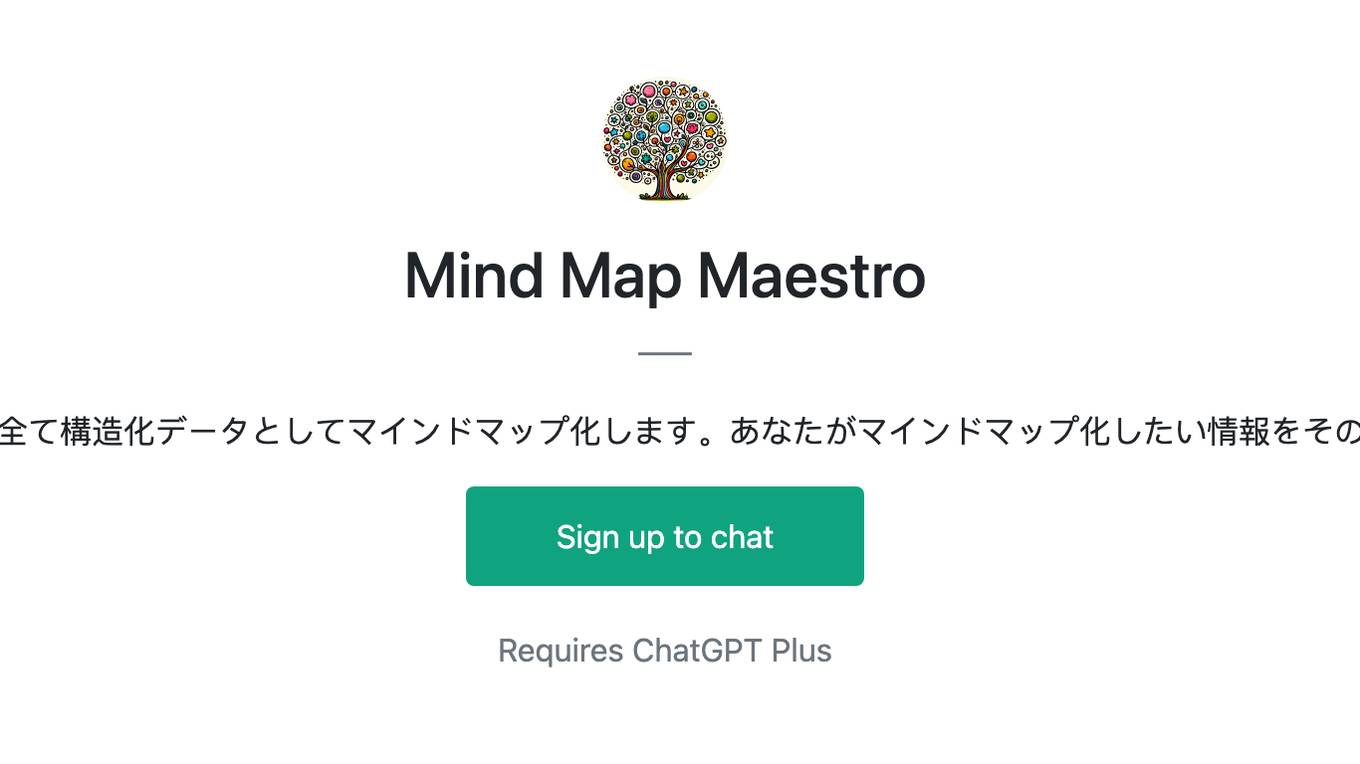Best AI tools for< Mapping Specialist >
Infographic
20 - AI tool Sites
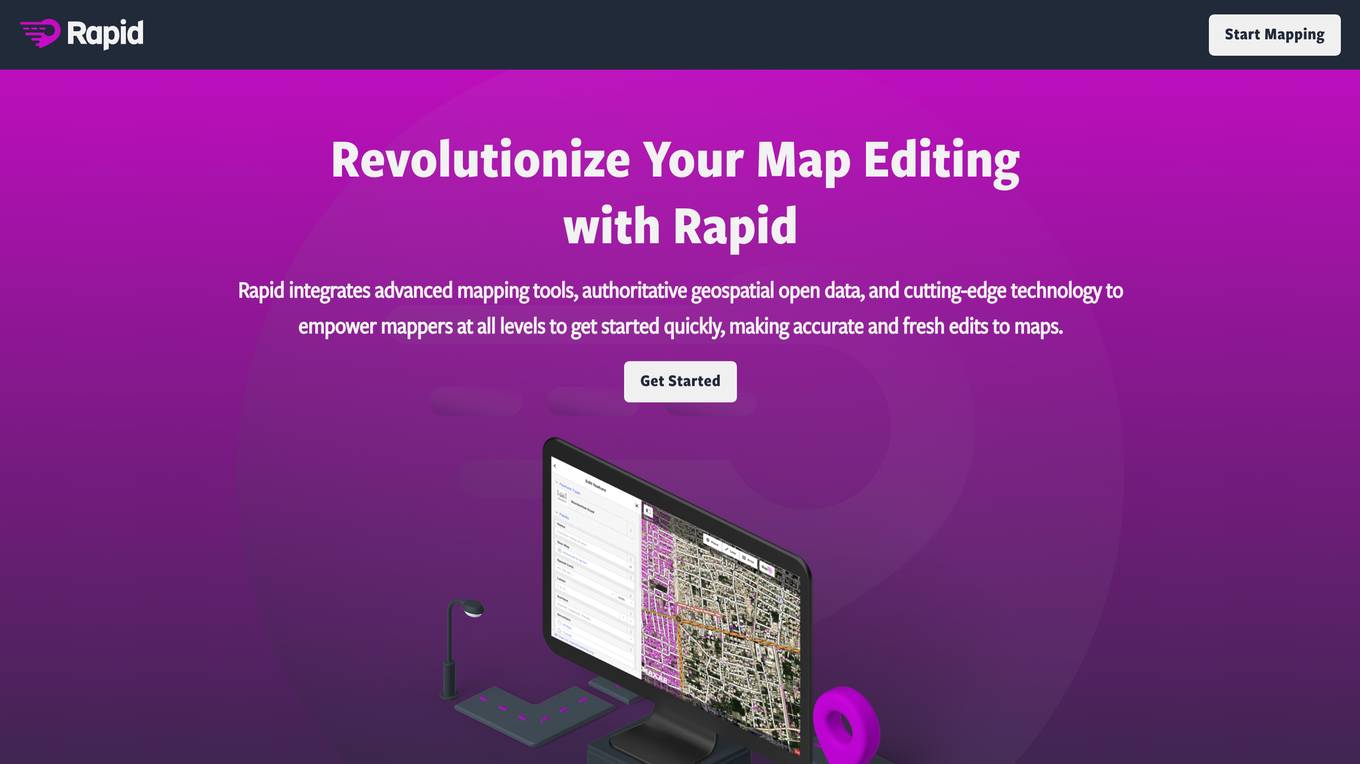
Rapid Editor
Rapid Editor is an advanced mapping tool that revolutionizes map editing by integrating cutting-edge technology and authoritative geospatial open data. It empowers OpenStreetMap mappers of all levels to make accurate and fresh edits quickly. The tool saves effort by utilizing AI to identify predicted features and provide a high-level overview of unmapped data globally. Rapid Editor's intuitive interface simplifies mapping, making it clear and simple for humanitarian and community groups to facilitate mapping projects.
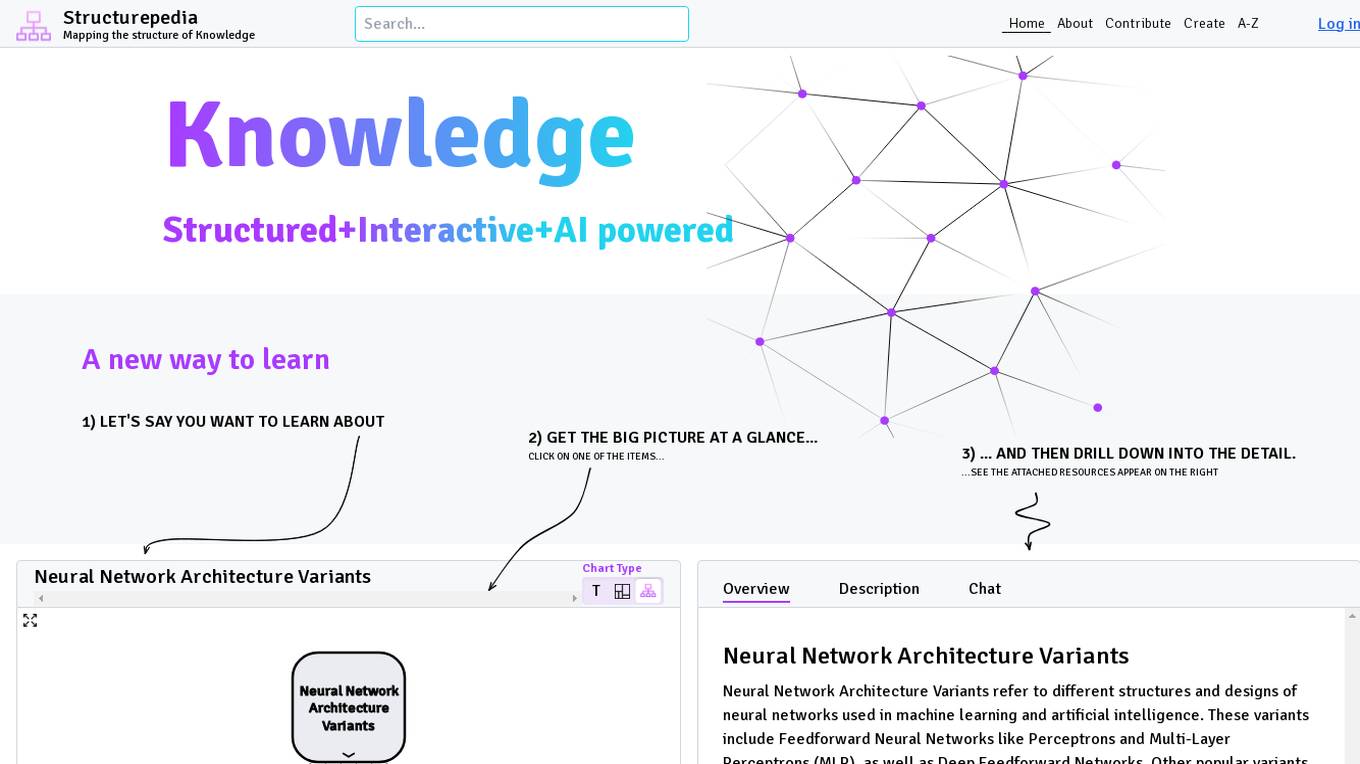
Structurepedia
Structurepedia is an AI-powered platform that maps the structure of knowledge by providing structured and interactive information on various topics, including neural network architecture variants and other important concepts in machine learning and artificial intelligence. It offers a new way to learn by allowing users to explore topics through visual diagrams and detailed resources, making it easier to understand complex information. Structurepedia aims to revolutionize the way people access and comprehend knowledge in the age of AI, acting as a modern encyclopedia and search engine tailored for the AI era.
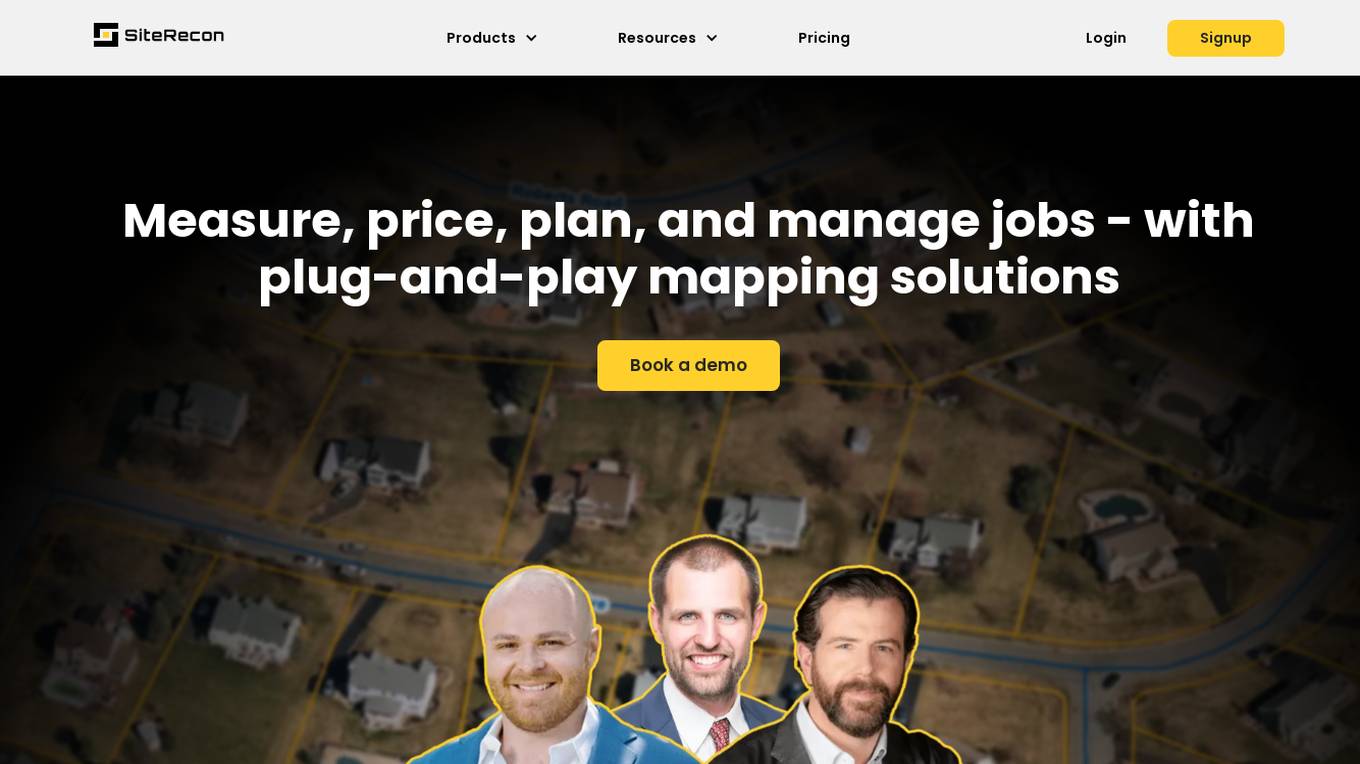
SiteRecon
SiteRecon is an AI-powered mapping tool designed for landscapers, offering features such as automated takeoffs, site condition reports, job plans, account management, and enhancement proposals. It helps landscapers streamline their sales process, improve productivity, and enhance client relations by providing accurate measurements, detailed site audits, and work reports. SiteRecon aims to revolutionize the landscaping industry by leveraging AI technology to simplify property mapping, estimate generation, and job management, ultimately leading to increased efficiency and profitability for landscaping businesses.
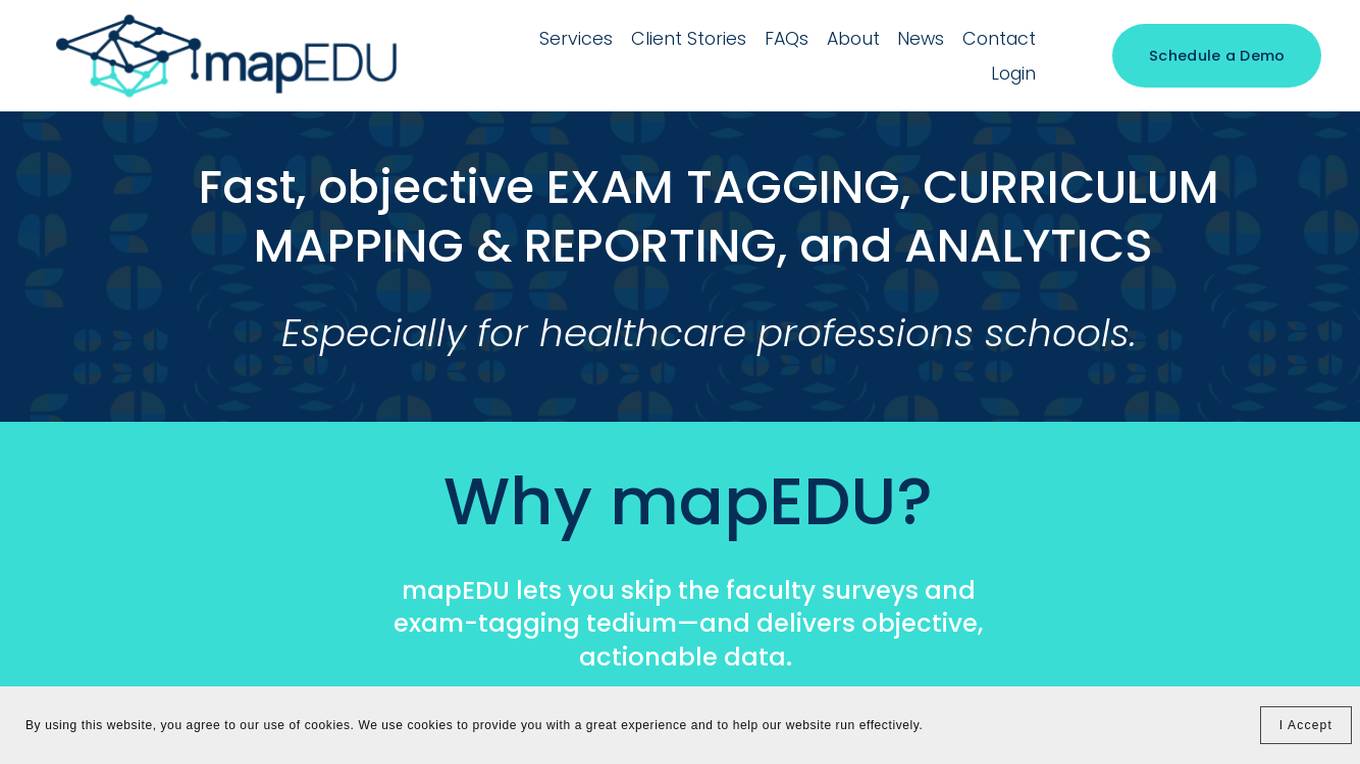
mapEDU
mapEDU is an AI-powered curriculum mapping and exam tagging software designed specifically for healthcare professions schools. It uses natural language processing and machine learning to automatically extract relevant MeSH tags from existing digital content, map events/courses/programs with outcomes, and auto-tag exam questions. This provides healthcare professions schools with objective, actionable data to improve curriculum design, validate revisions, and enhance student performance analytics.
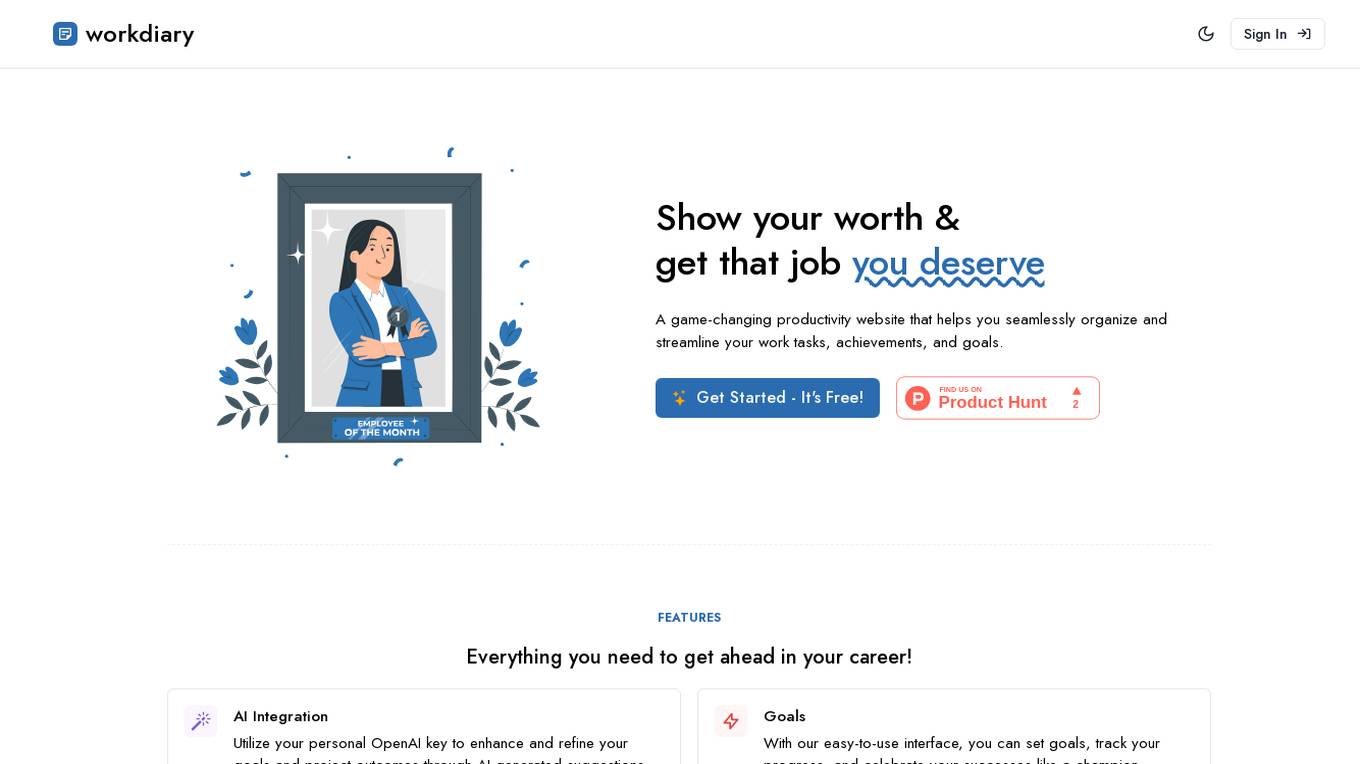
Workdiary
Workdiary is a game-changing productivity website designed to help users seamlessly organize and streamline their work tasks, achievements, and goals. It offers features such as AI Integration, goal setting and tracking, project management, milestone celebration, career guidance, and badge collection. Users can utilize their personal OpenAI key to enhance project outcomes, track progress, and receive actionable guidance to advance in their careers. Workdiary aims to empower users to take control of their professional journey and shape their future with a tool that evolves with their needs.
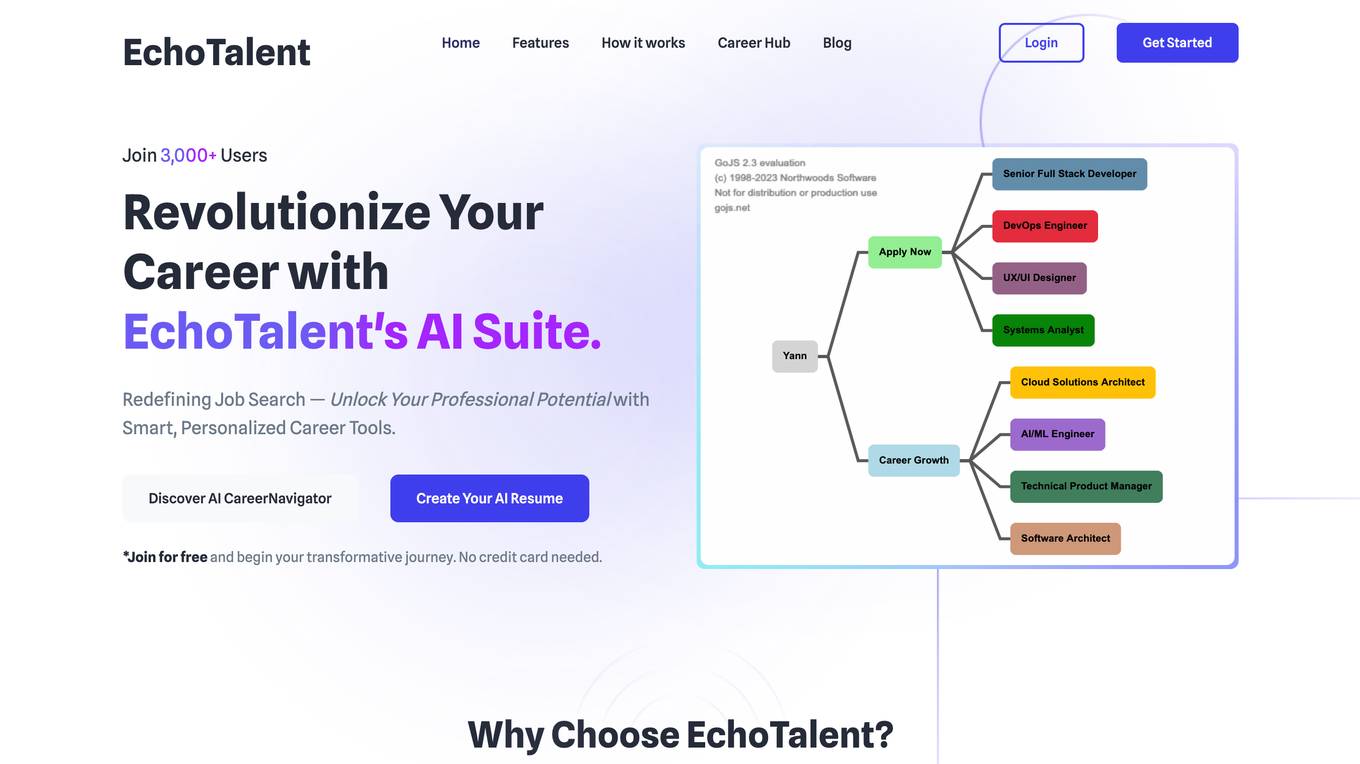
EchoTalent
EchoTalent is an AI-powered platform that helps users create ATS-optimized, tailored resumes and cover letters. By uploading their resume and job description, users can generate personalized documents in minutes. The platform uses advanced algorithms to match the job requirements, highlighting relevant keywords, skills, and experiences. EchoTalent is designed to enhance job application processes for mid to senior-level professionals, ensuring their resumes are ATS-friendly and easily readable. With a free trial available, users can explore the features before committing to a subscription.
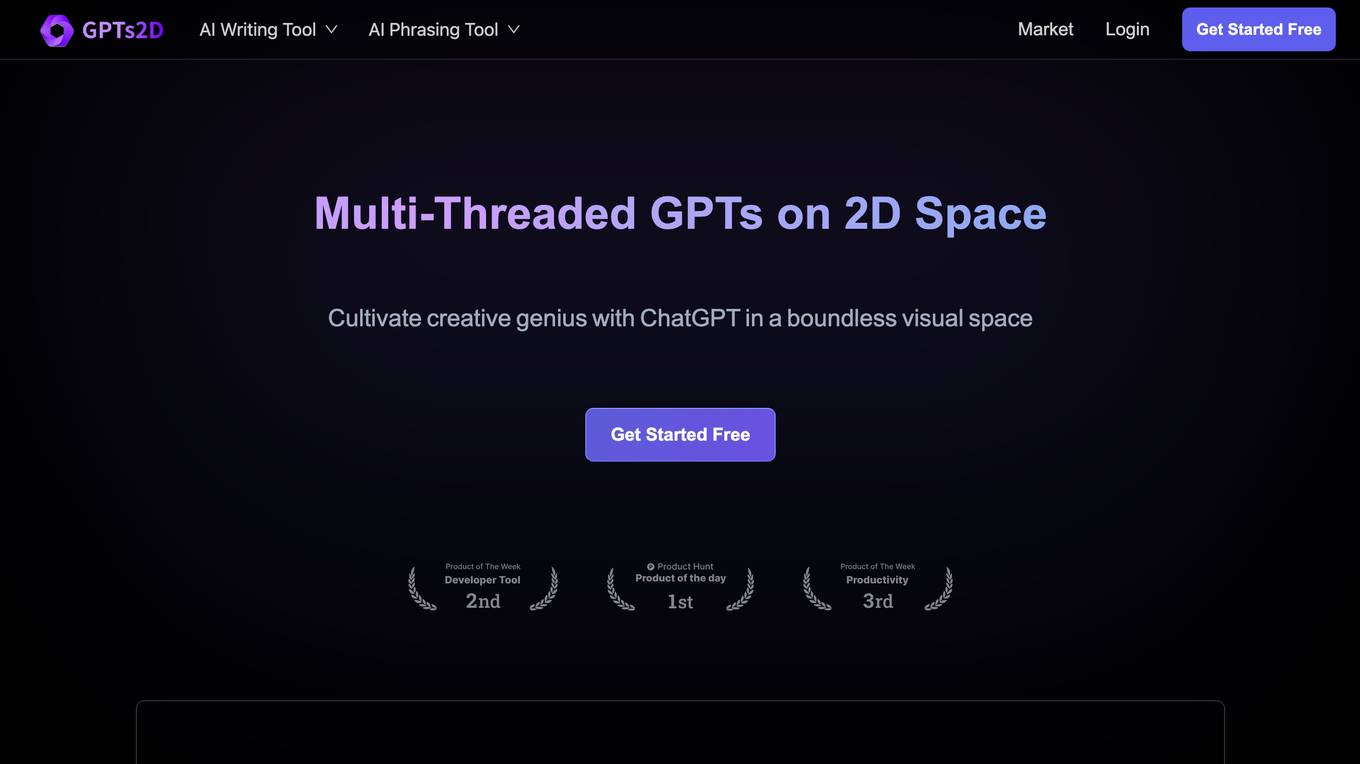
GPTs2D
GPTs2D is a multi-threaded AI writing tool that operates in a 2D visual space. It leverages the power of ChatGPT to help users enhance their creativity and generate content in a limitless environment. The tool offers a unique approach to AI phrasing and market writing, allowing users to explore new dimensions in content creation.
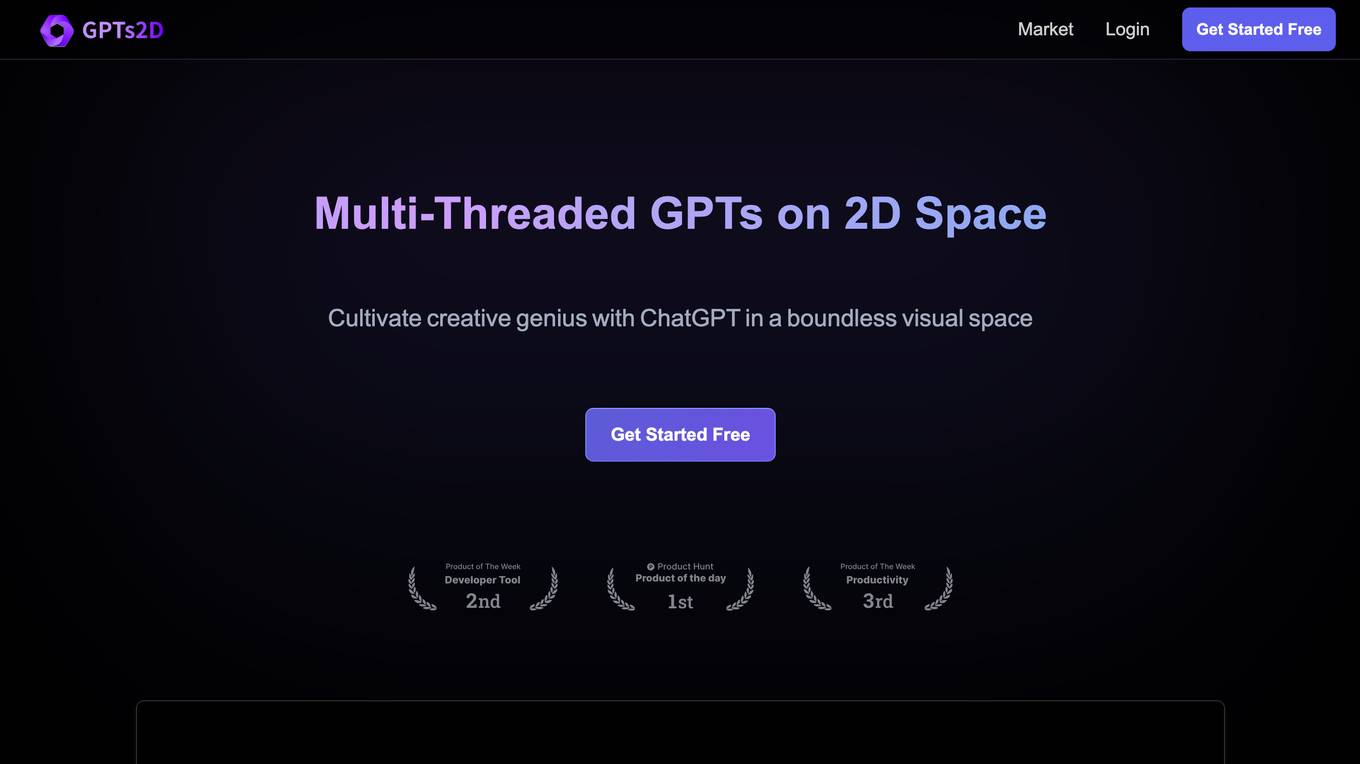
503 Service Temporarily Unavailable
The website is currently experiencing a temporary service outage, resulting in a 503 Service Temporarily Unavailable error message. This error typically occurs when the server is unable to handle the request due to maintenance, overload, or other issues. Users may encounter this message when trying to access the website, indicating a temporary disruption in service. It is recommended to wait for the issue to be resolved by the website administrators before attempting to access the site again.
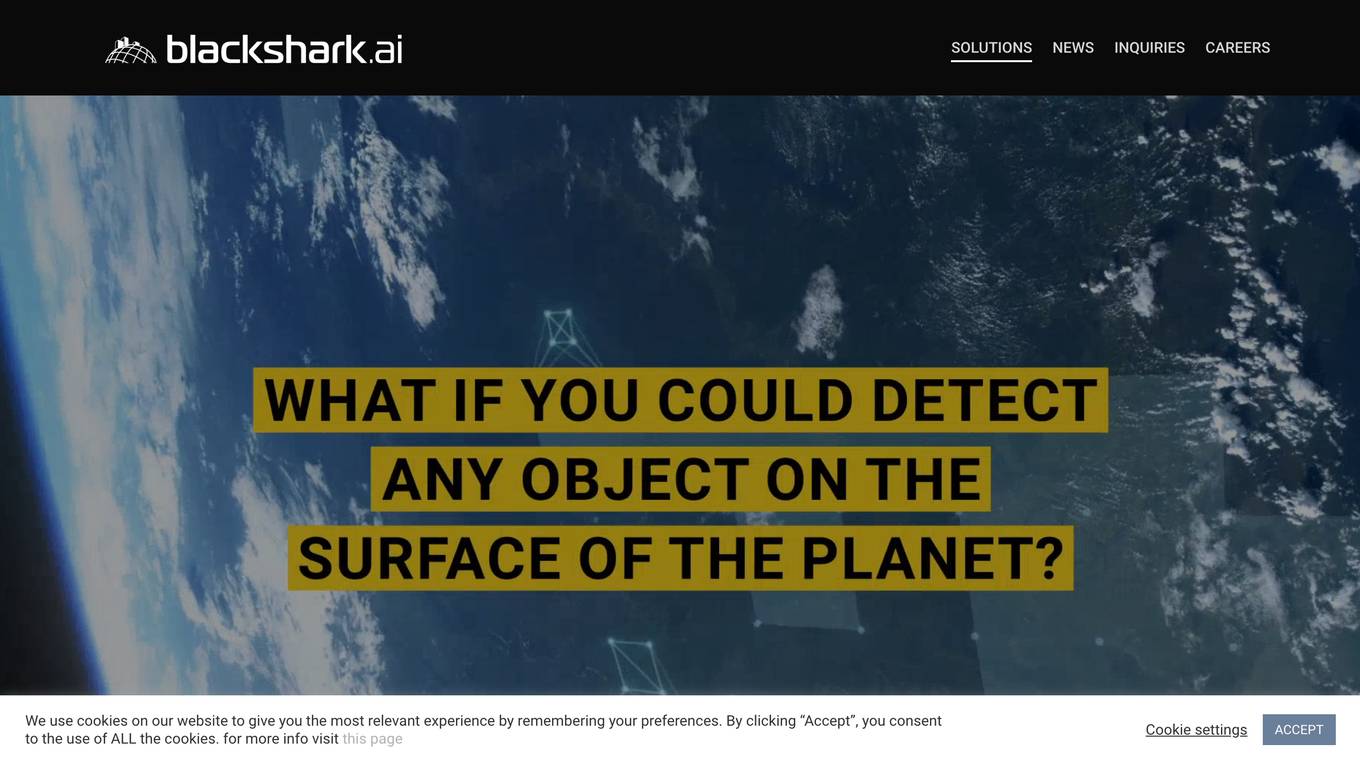
Blackshark.ai
Blackshark.ai is an AI-based platform that generates real-time accurate semantic photorealistic 3D digital twin of the entire planet. The platform extracts insights about the planet's infrastructure from satellite and aerial imagery via machine learning at a global scale. It enriches missing attributes using AI to provide a photorealistic, geo-typical, or asset-specific digital twin. The results can be used for visualization, simulation, mapping, mixed reality environments, and other enterprise solutions. The platform offers end-to-end geospatial solutions, including globe data input sources, no-code data labeling, geointelligence at scale, 3D semantic map, and synthetic environments.
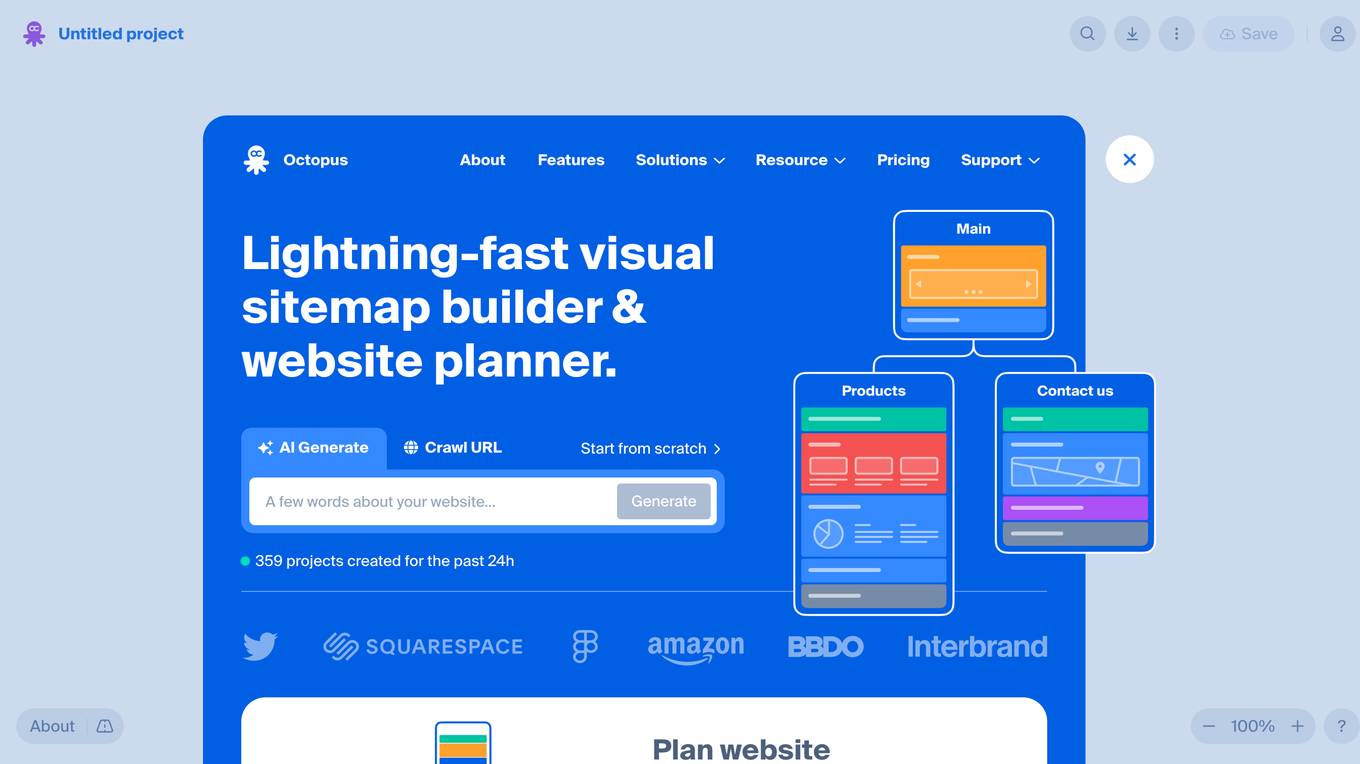
Octopus.do
Octopus.do is a lightning-fast visual sitemap builder and website planner that offers a seamless experience for website architecture planning. With the help of AI technology, users can easily generate colorful visual sitemaps and low-fidelity wireframes to visualize website content and layout. The platform allows users to prepare, manage, and collaborate on website content and SEO, making website planning fast, easy, and enjoyable. Octopus.do also provides a variety of sitemap templates for different types of websites, along with features for real-time collaboration, onsite SEO improvement, and integration with Figma designs.
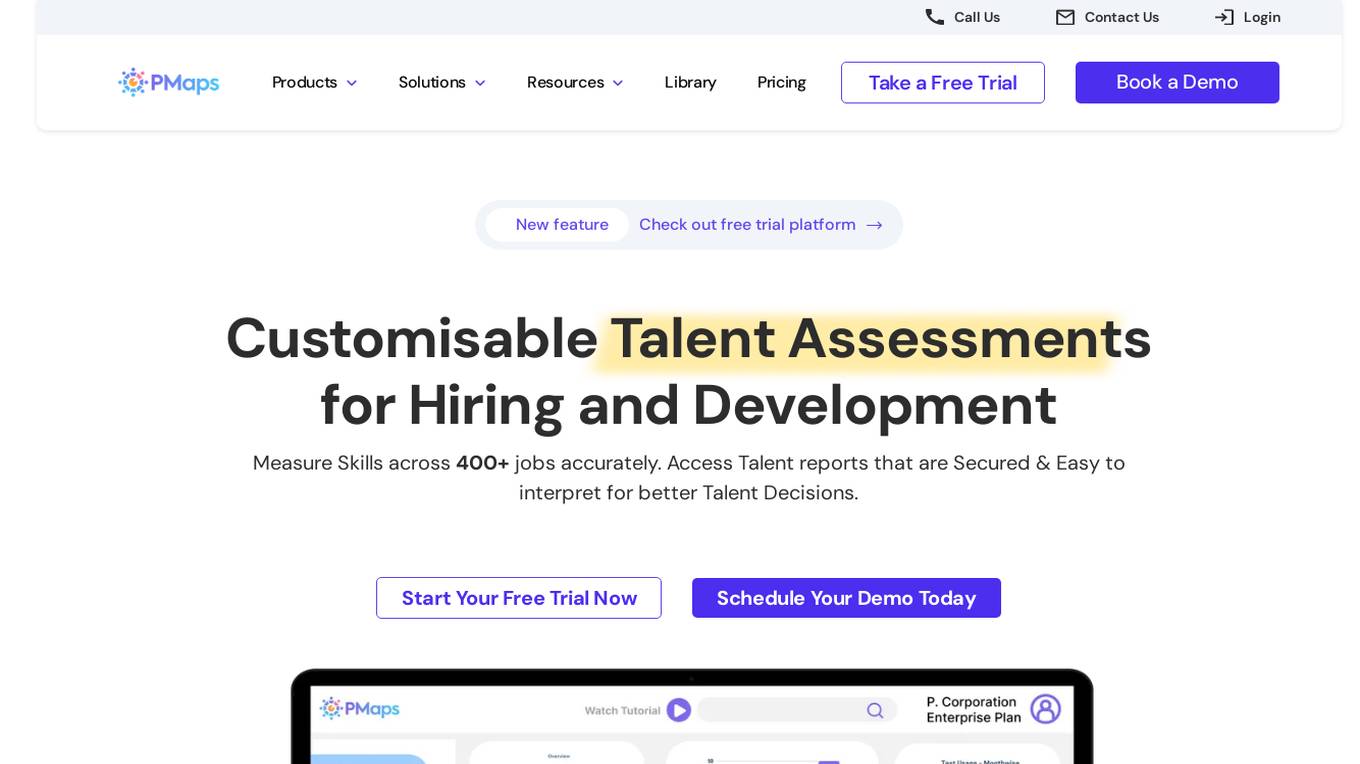
PMaps
PMaps is an AI-powered talent assessment platform designed to revolutionize talent management by offering evidence-based decision-making tools for recruiters and talent practitioners. The platform leverages AI and people analytics to provide precise, customizable assessments across various job roles and industries. PMaps ensures fair, unbiased talent evaluation through scientifically backed assessments, standardized processes, and comprehensive evaluations. With features like automated distribution of assessment links, role-specific tests, and real-time analytics, PMaps streamlines recruitment processes and enhances talent acquisition. The platform prioritizes data security and privacy, complying with GDPR standards and ensuring ethical handling of data. PMaps offers customizable assessments, a diverse skill library, and a user-friendly interface to tailor assessments to specific job roles and evolving industry needs. By providing detailed reports, continuous platform updates, and employee engagement surveys, PMaps empowers organizations to make informed hiring decisions, improve employee retention, and drive organizational success.
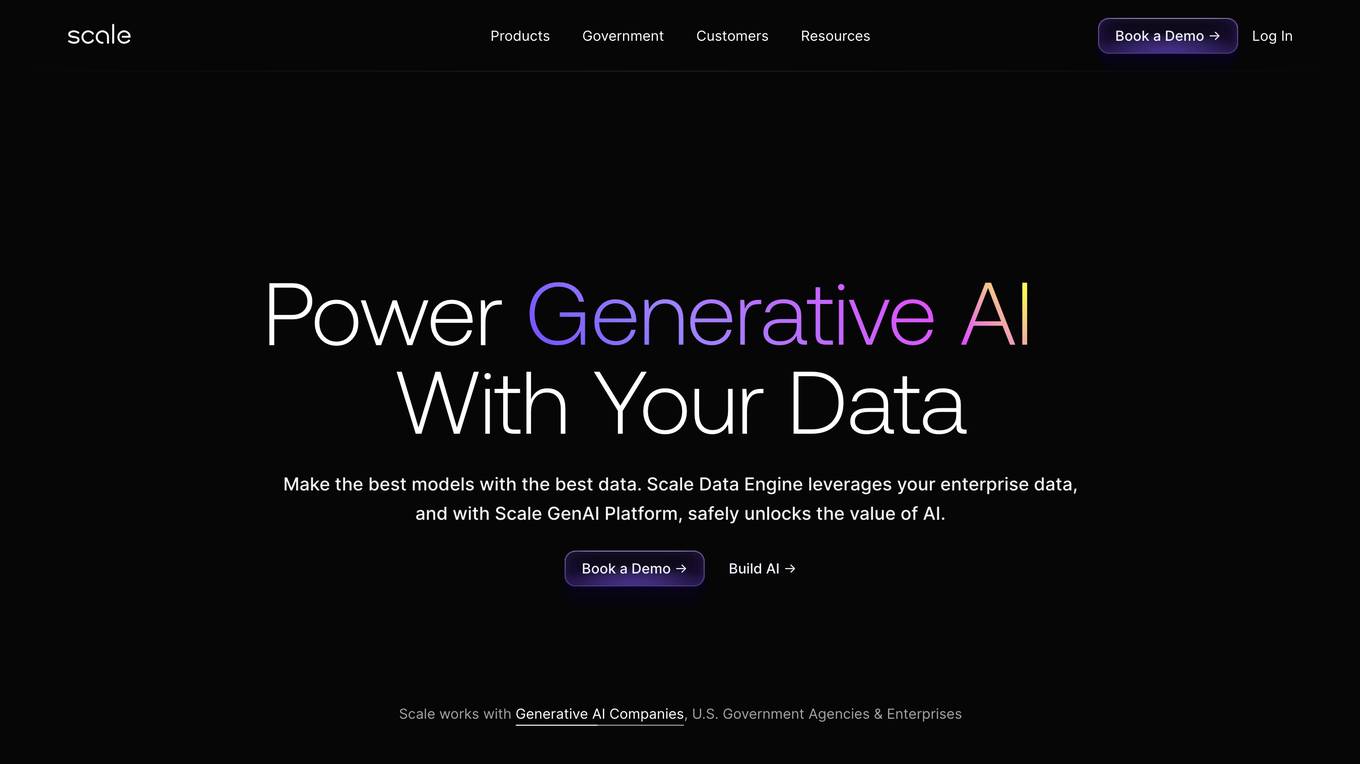
Scale AI
Scale AI is an AI tool that accelerates the development of AI applications for enterprise, government, and automotive sectors. It offers Scale Data Engine for generative AI, Scale GenAI Platform, and evaluation services for model developers. The platform leverages enterprise data to build sustainable AI programs and partners with leading AI models. Scale's focus on generative AI applications, data labeling, and model evaluation sets it apart in the AI industry.
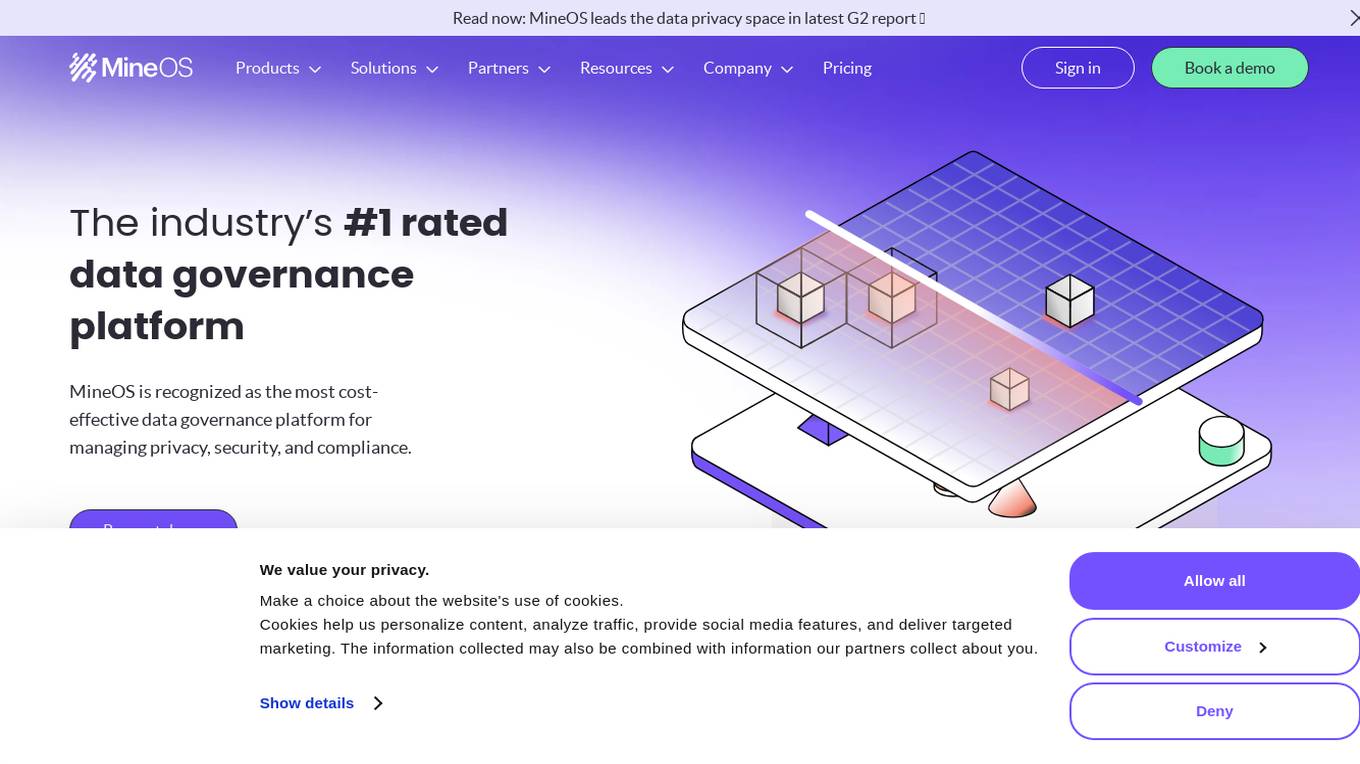
MineOS
MineOS is an automation-driven platform that focuses on privacy, security, and compliance. It offers a comprehensive suite of tools and solutions to help businesses manage their data privacy needs efficiently. By leveraging AI and special discovery methods, MineOS adapts unique data processes to universal privacy standards seamlessly. The platform provides features such as data mapping, AI governance, DSR automations, consent management, and security & compliance solutions to ensure data visibility and governance. MineOS is recognized as the industry's #1 rated data governance platform, offering cost-effective control of data systems and centralizing data subject request handling.
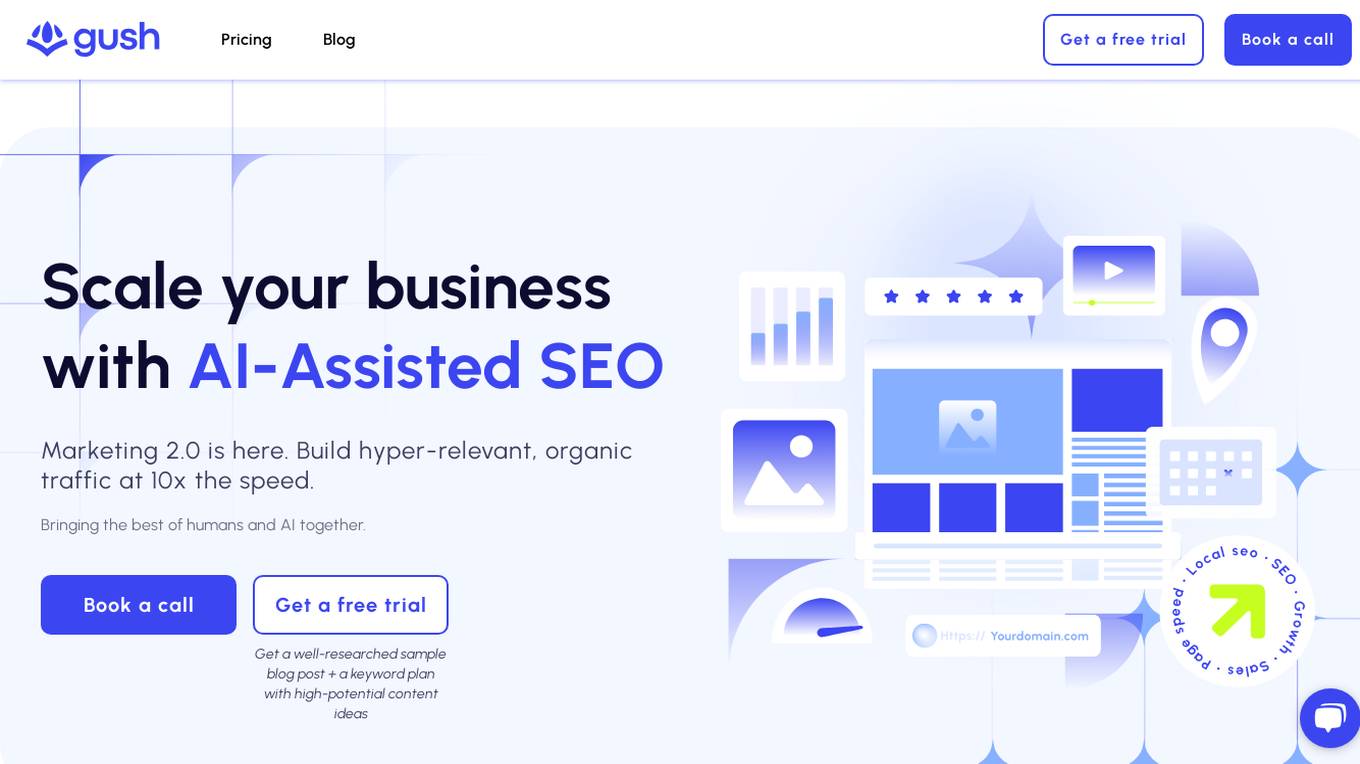
Gushwork
Gushwork is an AI-assisted SEO tool designed to help businesses scale their online presence by combining human expertise with AI technology. The platform offers services such as AI-powered keyword and topic mapping, real human marketers to vet content, and automated organic presence building. Gushwork aims to increase website traffic, organic sales, and overall online visibility through data-driven strategies and technical SEO optimizations. The tool is purpose-built for consumer brands, SaaS, B2B services, and local consumer services, with a focus on integration and partnerships for seamless operations.
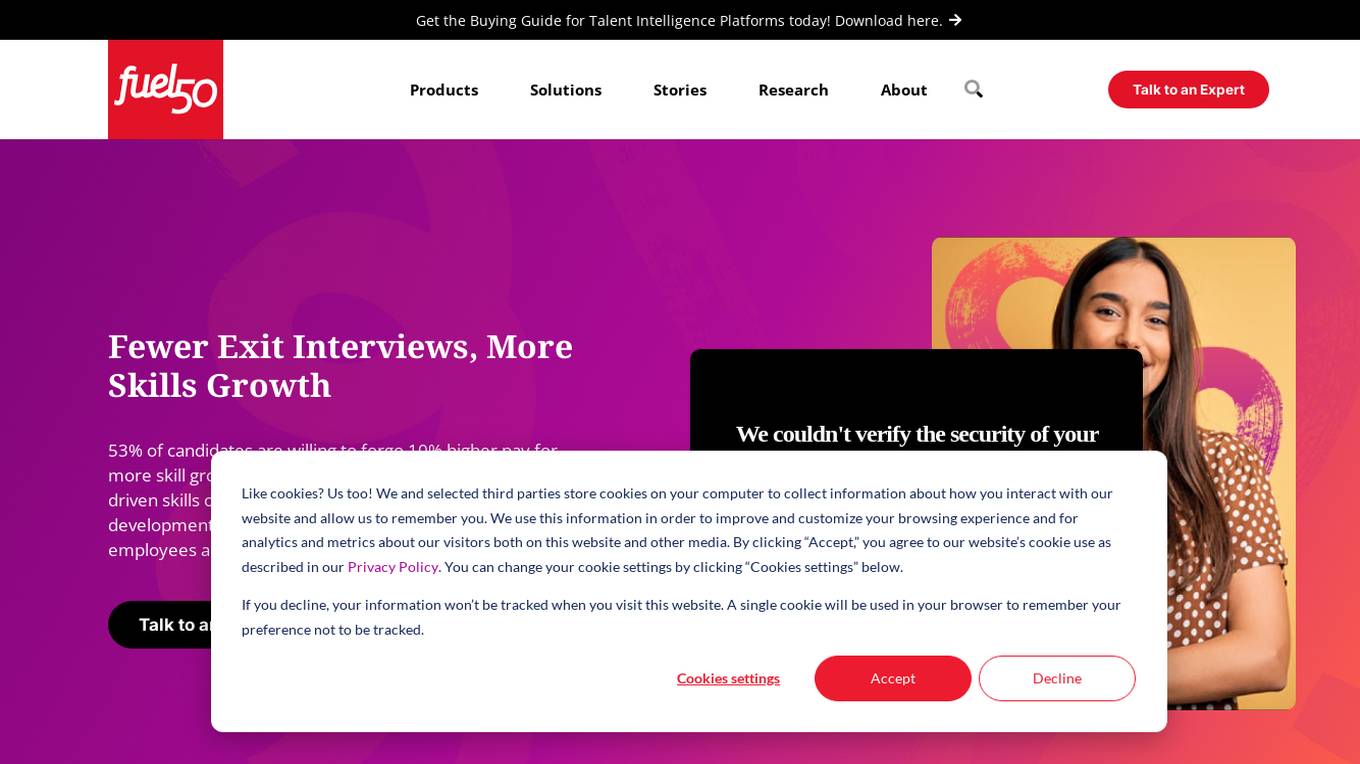
Fuel50
Fuel50 is an AI Talent Marketplace that offers personalized skill development paths and growth opportunities for employees. It leverages expert-driven skills ontology to align individual aspirations with organizational goals, enhance internal mobility, boost employee engagement, and increase retention. Fuel50 provides deep insights into workforce capabilities, enabling data-driven decisions for creating agile, resilient teams. The platform offers features like automated skill to role mapping, talent allocation, employee-driven career pathways, and holistic employee growth.
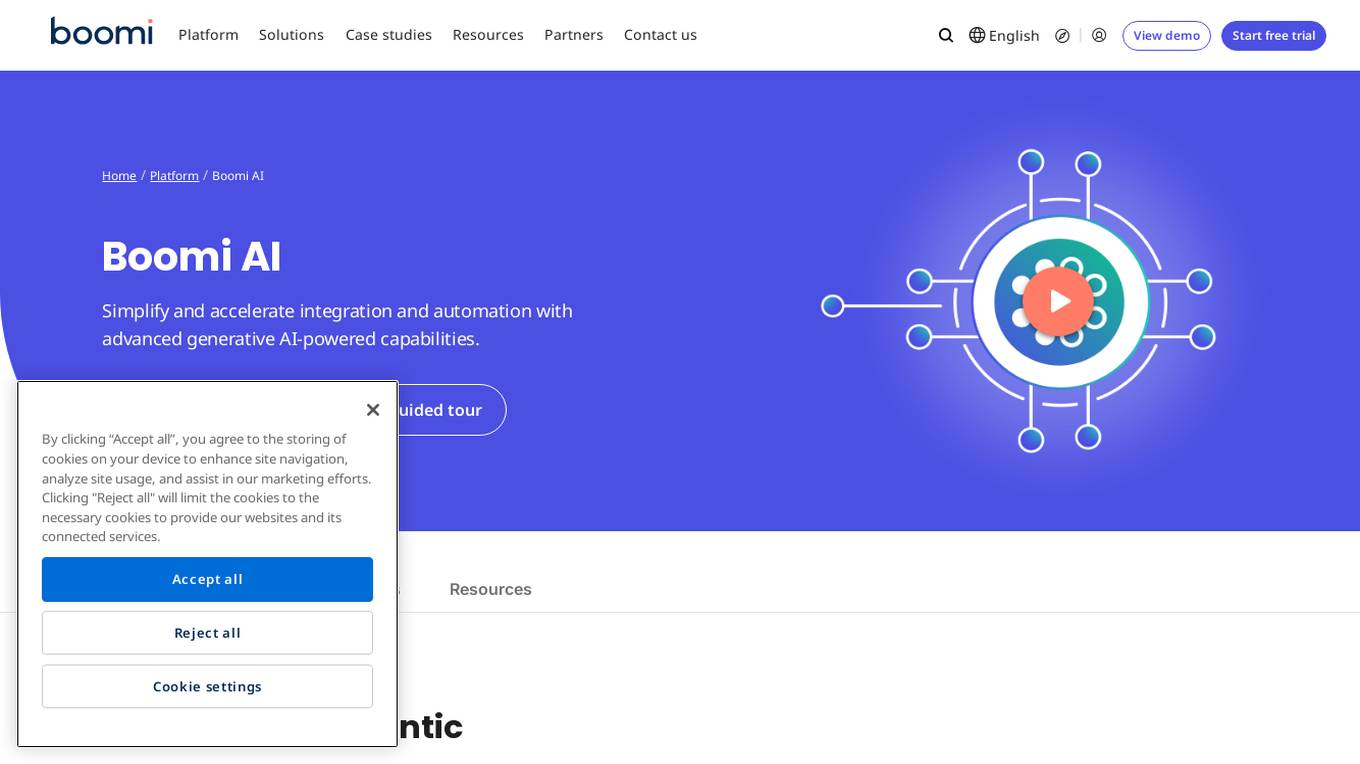
Boomi
Boomi is an AI-powered integration and automation platform that simplifies and accelerates business processes by leveraging generative AI capabilities. With over 20,000 customers worldwide, Boomi offers flexible pricing for small to enterprise-level businesses, ensuring security and compliance with regulatory standards. The platform enables seamless integration, automation, and management of applications, data, APIs, workflows, and event-driven integrations. Boomi AI Agents provide advanced features like AI-powered data classification, automated data mapping, error resolution, and process documentation. Boomi AI empowers businesses to streamline operations, enhance efficiency, and drive growth through proactive business intelligence and cross-team collaboration.
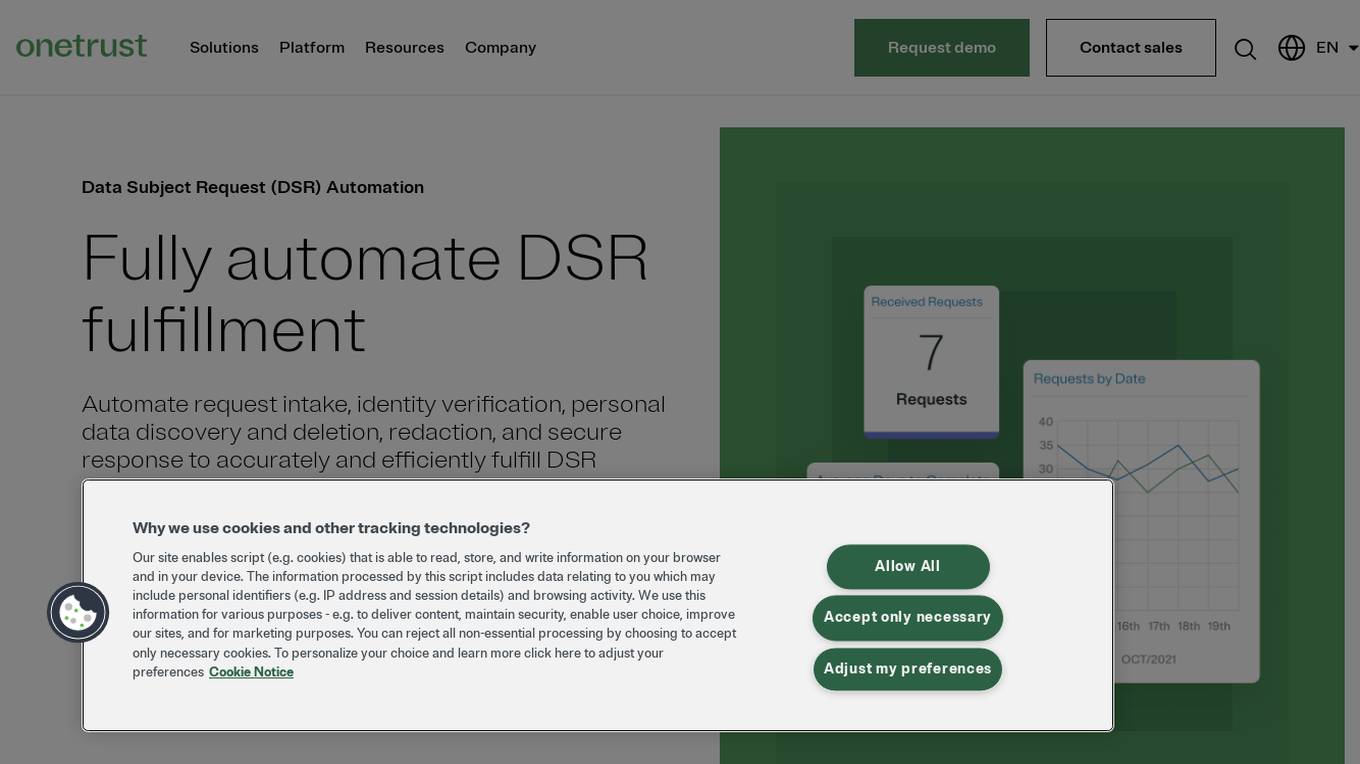
OneTrust
OneTrust is an AI tool that offers a comprehensive suite of privacy management solutions to help organizations streamline compliance, improve operational efficiency, and enable risk-informed decisions. The platform enables automation of processes like Data Subject Rights (DSRs), risk assessments, and data mapping, allowing organizations to manage privacy requirements efficiently. OneTrust integrates regulatory-aware workflow automation with data integration to reduce costs and enhance compliance with regulations like GDPR and CCPA. The platform provides a unified privacy-centric user experience, ensuring secure response to DSR requests and building consumer trust. By automating ID verification, data retrieval and deletion, legal hold checks, and data redaction, OneTrust helps organizations deliver privacy securely and mitigate security risks.
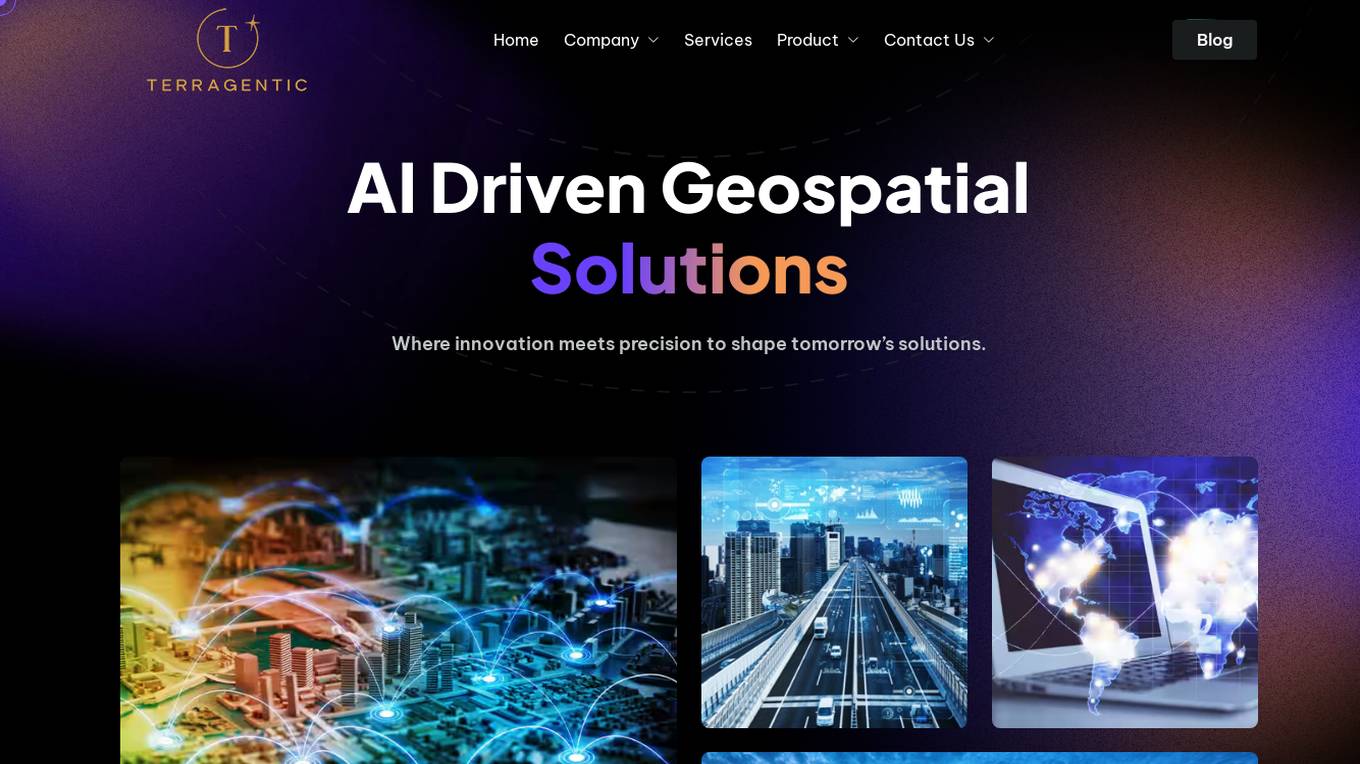
Terragentic
Terragentic is an AI-driven geospatial technology company that empowers sustainable resource management and transformative decision-making. They provide cutting-edge geospatial services, precise mapping, advanced data analytics, and innovative applications of artificial intelligence to solve complex challenges across diverse sectors. Terragentic is committed to environmental stewardship, ethical business practices, and delivering high-quality, AI-enhanced, accurate, and actionable geospatial intelligence to empower industries.

Relyance AI
Relyance AI is a platform that offers 360 Data Governance and Trust solutions. It helps businesses safeguard against fines and reputation damage while enhancing customer trust to drive business growth. The platform provides visibility into enterprise-wide data processing, ensuring compliance with regulatory and customer obligations. Relyance AI uses AI-powered risk insights to proactively identify and address risks, offering a unified trust and governance infrastructure. It offers features such as data inventory and mapping, automated assessments, security posture management, and vendor risk management. The platform is designed to streamline data governance processes, reduce costs, and improve operational efficiency.
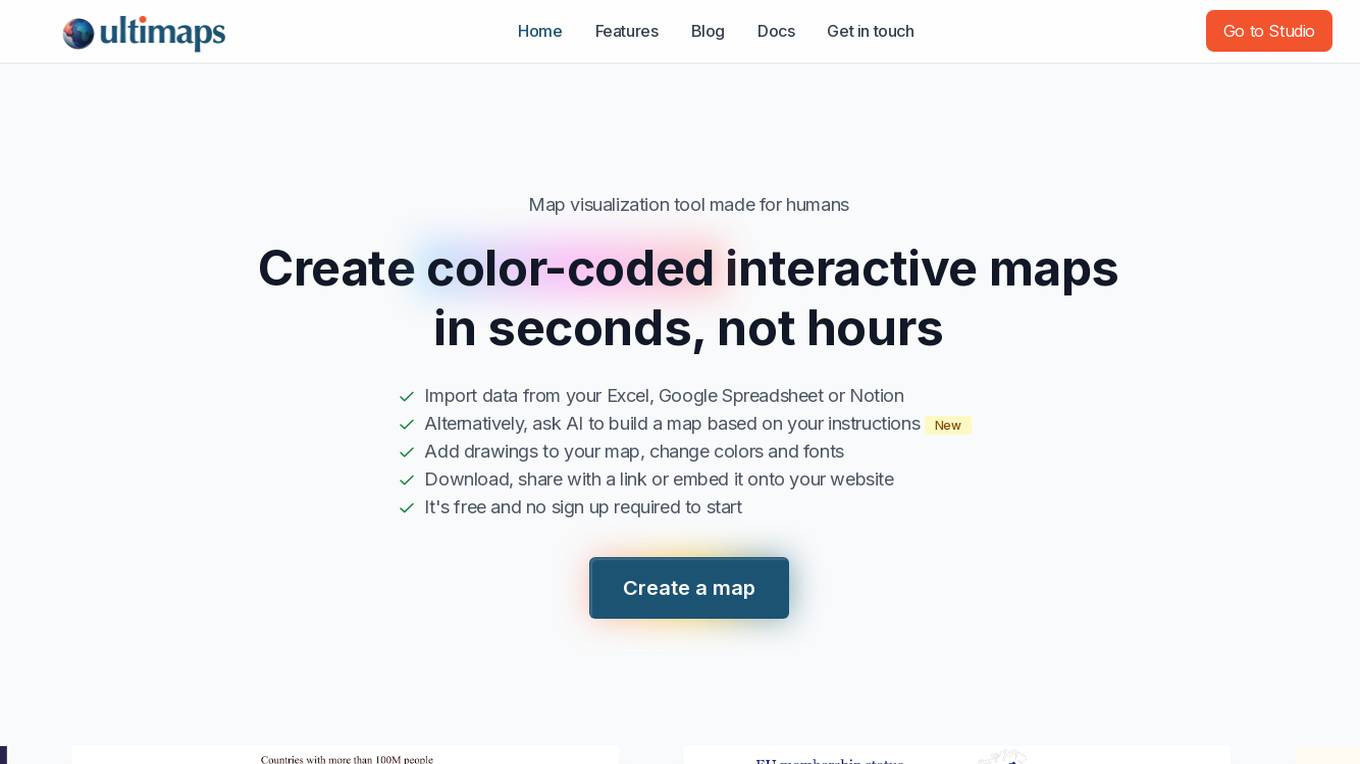
Ultimaps
Ultimaps is an AI-powered map visualization tool designed for humans to create color-coded interactive maps in seconds. Users can import data from Excel, Google Spreadsheet, or Notion, or instruct the AI to build a map based on their requirements. The tool allows users to add drawings, change colors and fonts, and easily download, share, or embed the maps. Ultimaps offers features like automatic color-coding based on imported data, customization options, auto-saving of visualizations, and the ability to create interactive maps without any coding. It is a user-friendly platform suitable for various mapping needs.
0 - Open Source Tools
20 - OpenAI Gpts
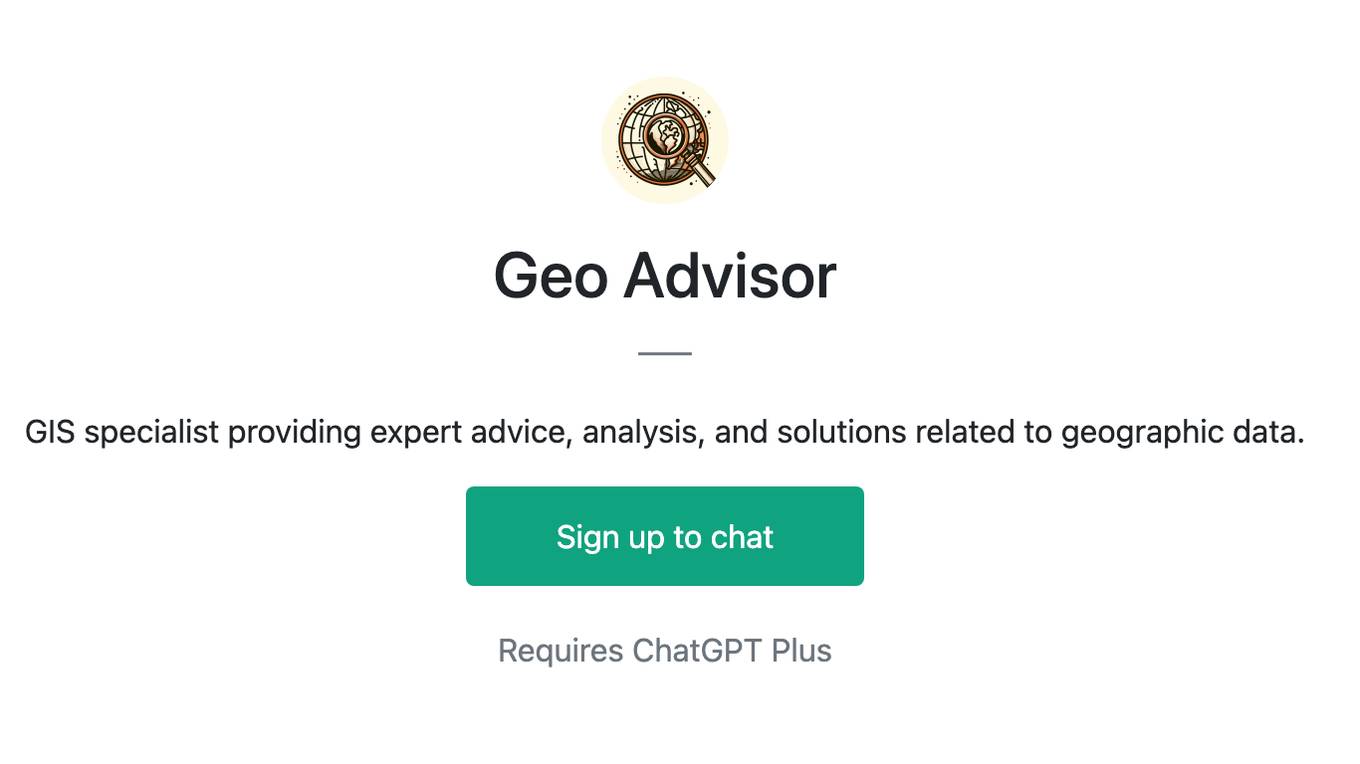
Geo Advisor
GIS specialist providing expert advice, analysis, and solutions related to geographic data.
Concept Explainer
A facilitator for understanding concepts using a simplified Concept Attainment Method.
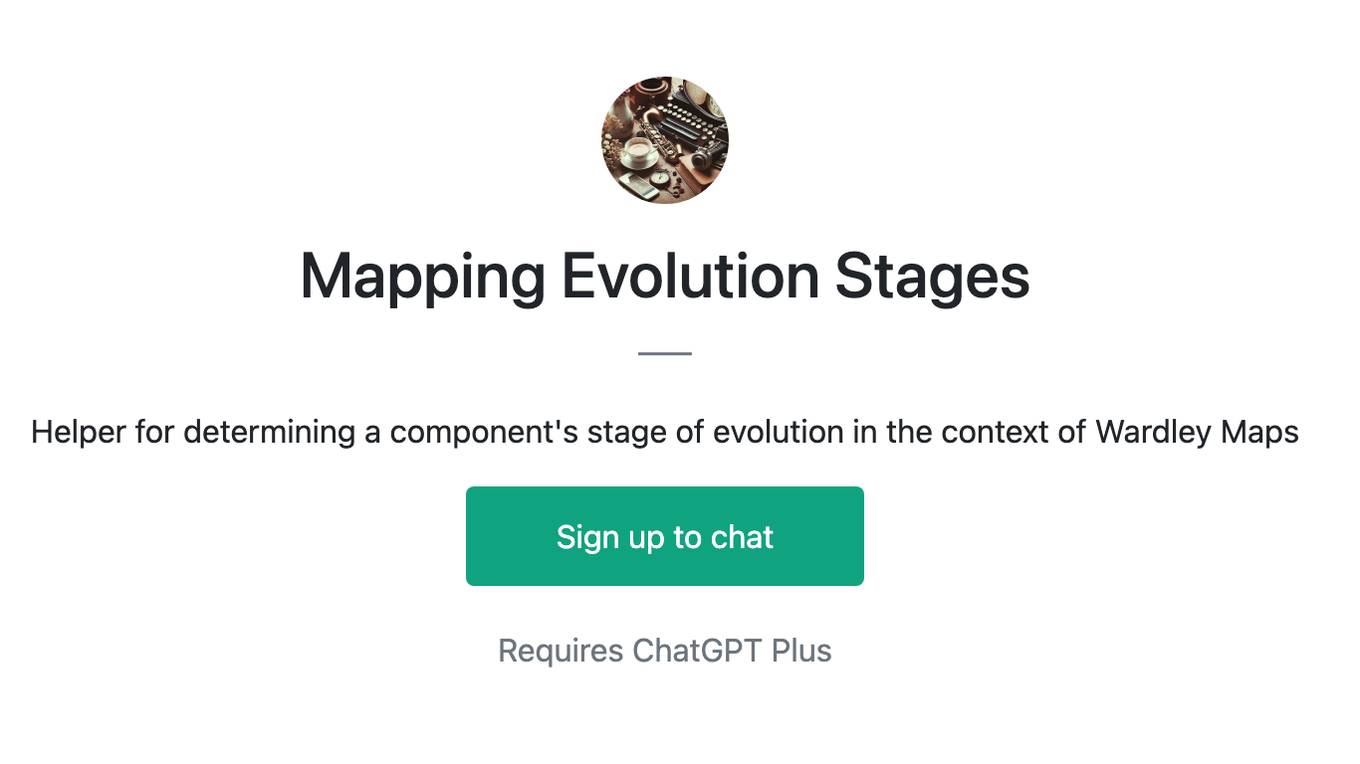
Mapping Evolution Stages
Helper for determining a component's stage of evolution in the context of Wardley Maps
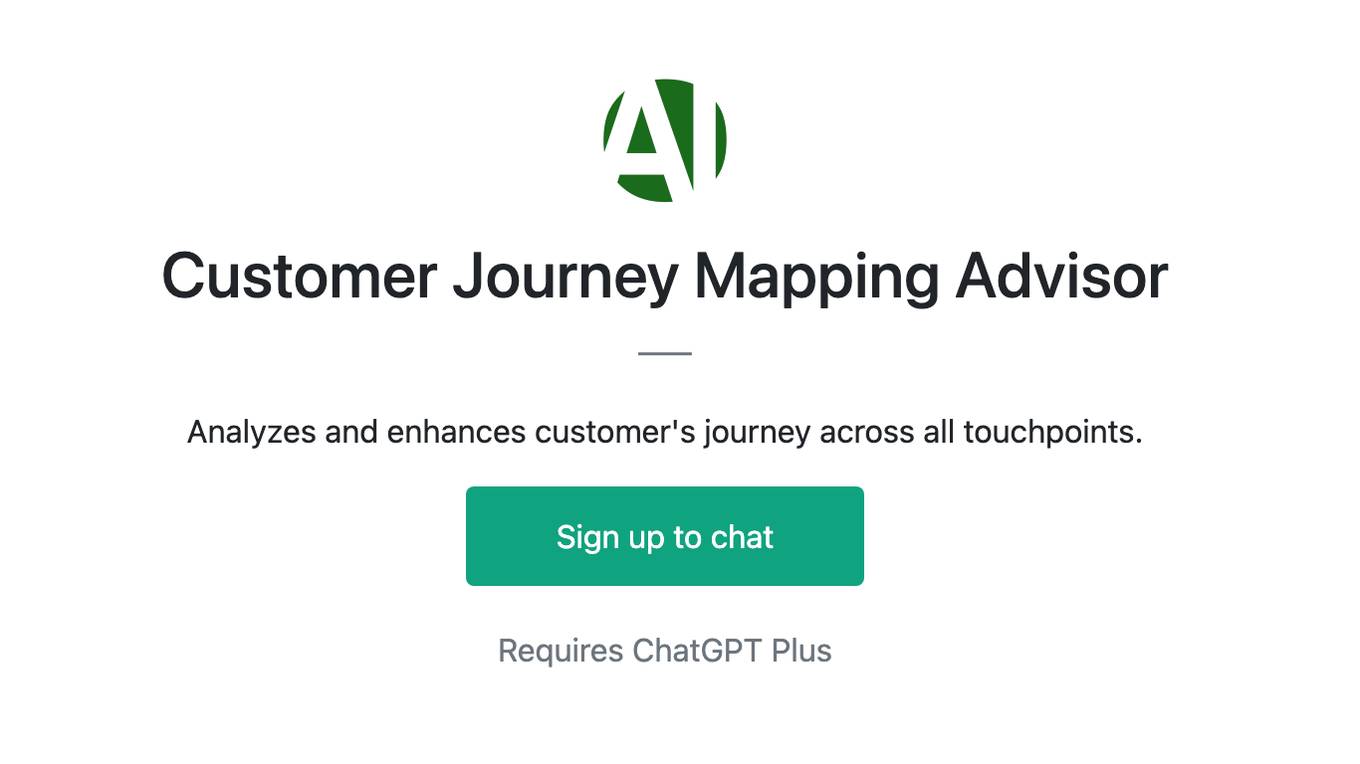
Customer Journey Mapping Advisor
Analyzes and enhances customer's journey across all touchpoints.
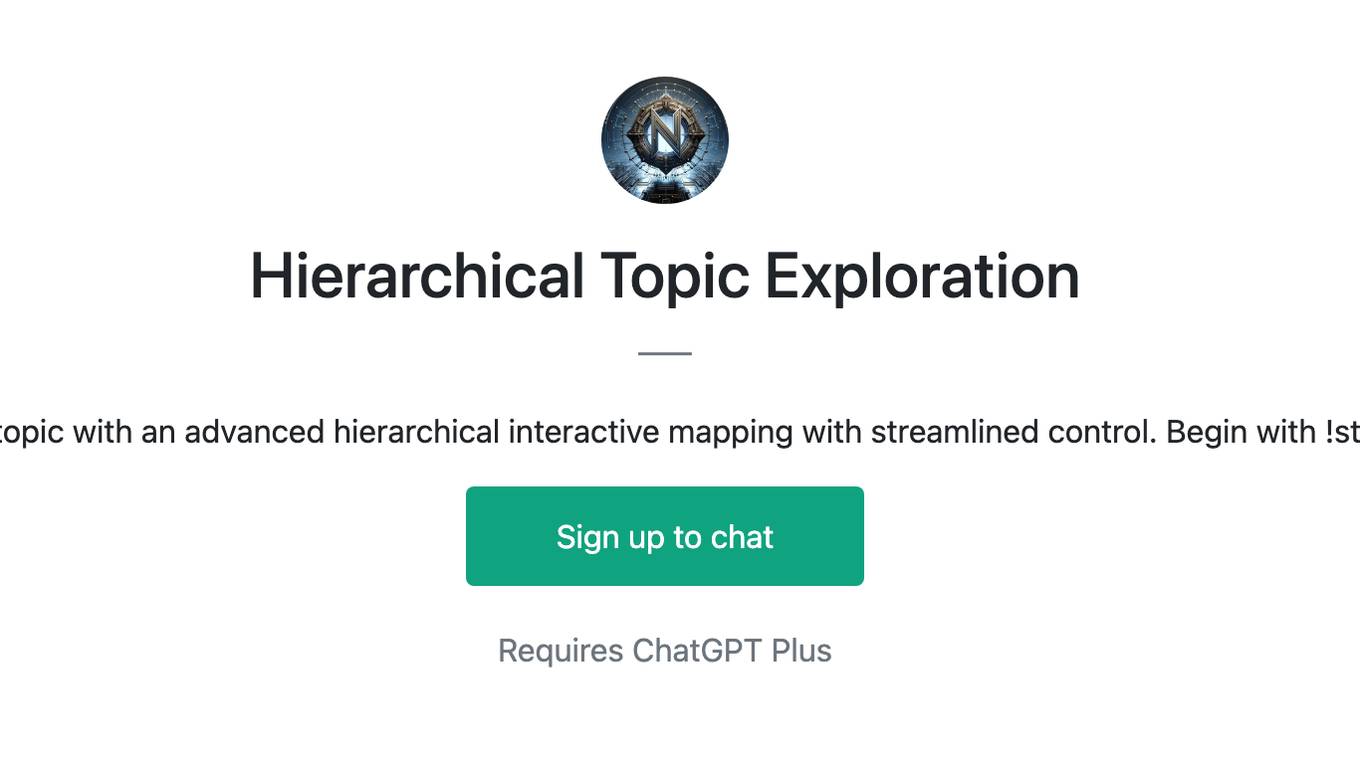
Hierarchical Topic Exploration
Explore any topic with an advanced hierarchical interactive mapping with streamlined control. Begin with !start [topic].
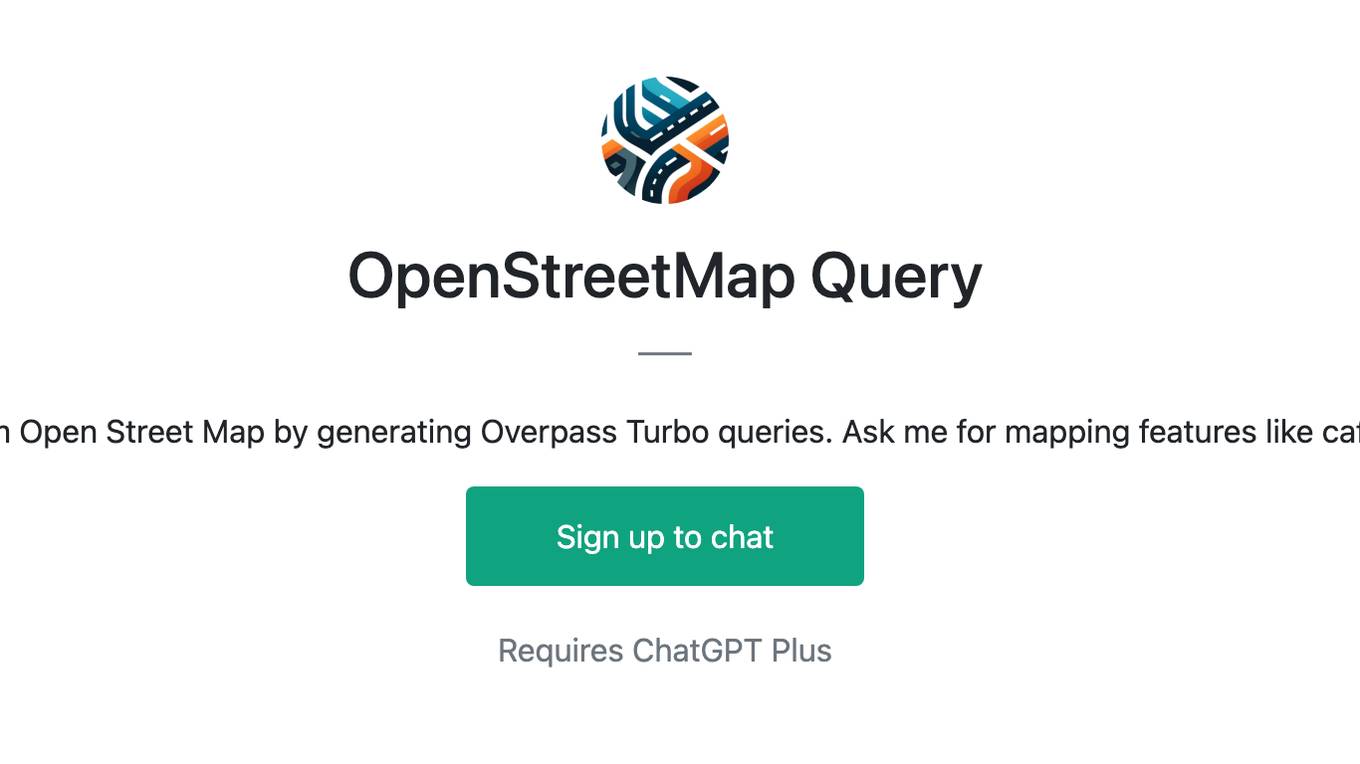
OpenStreetMap Query
Helps get map data from Open Street Map by generating Overpass Turbo queries. Ask me for mapping features like cafes, rivers or highways
